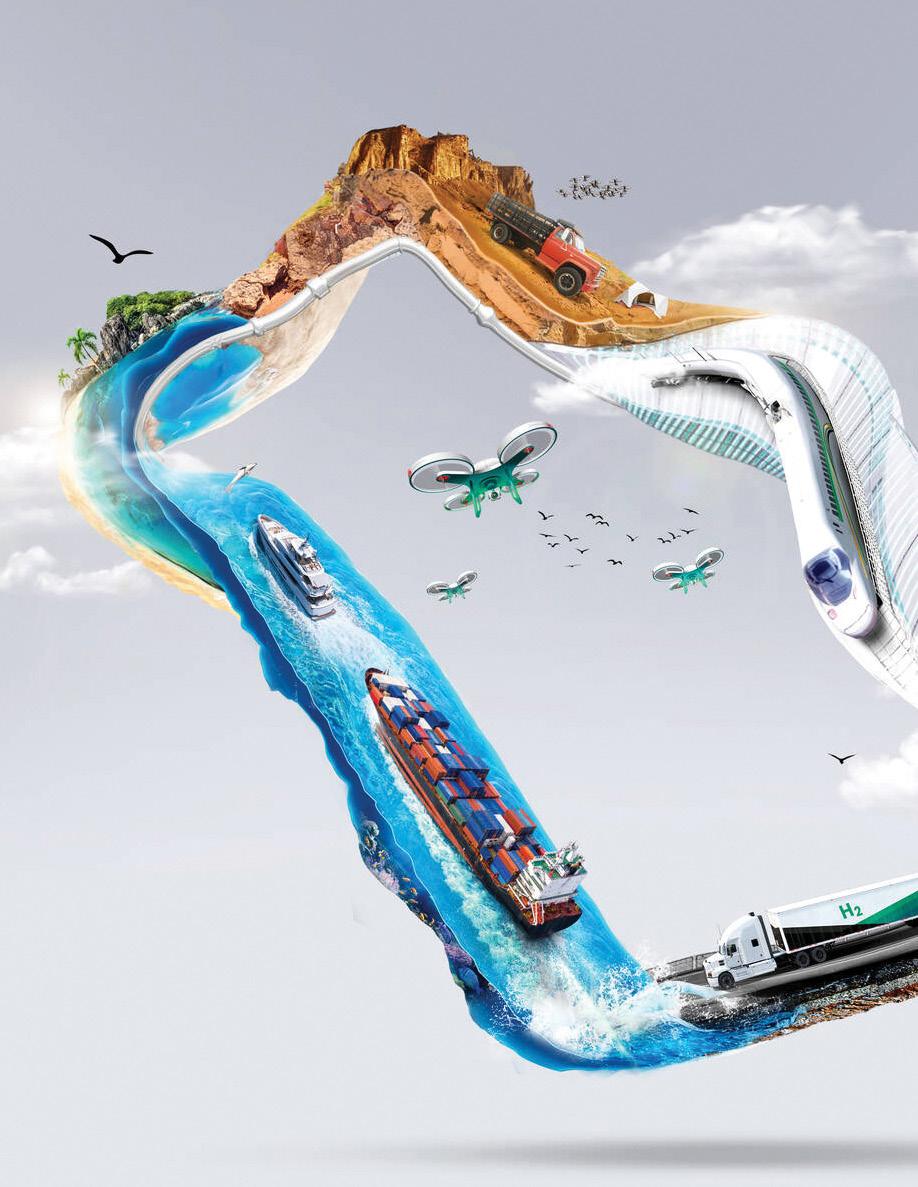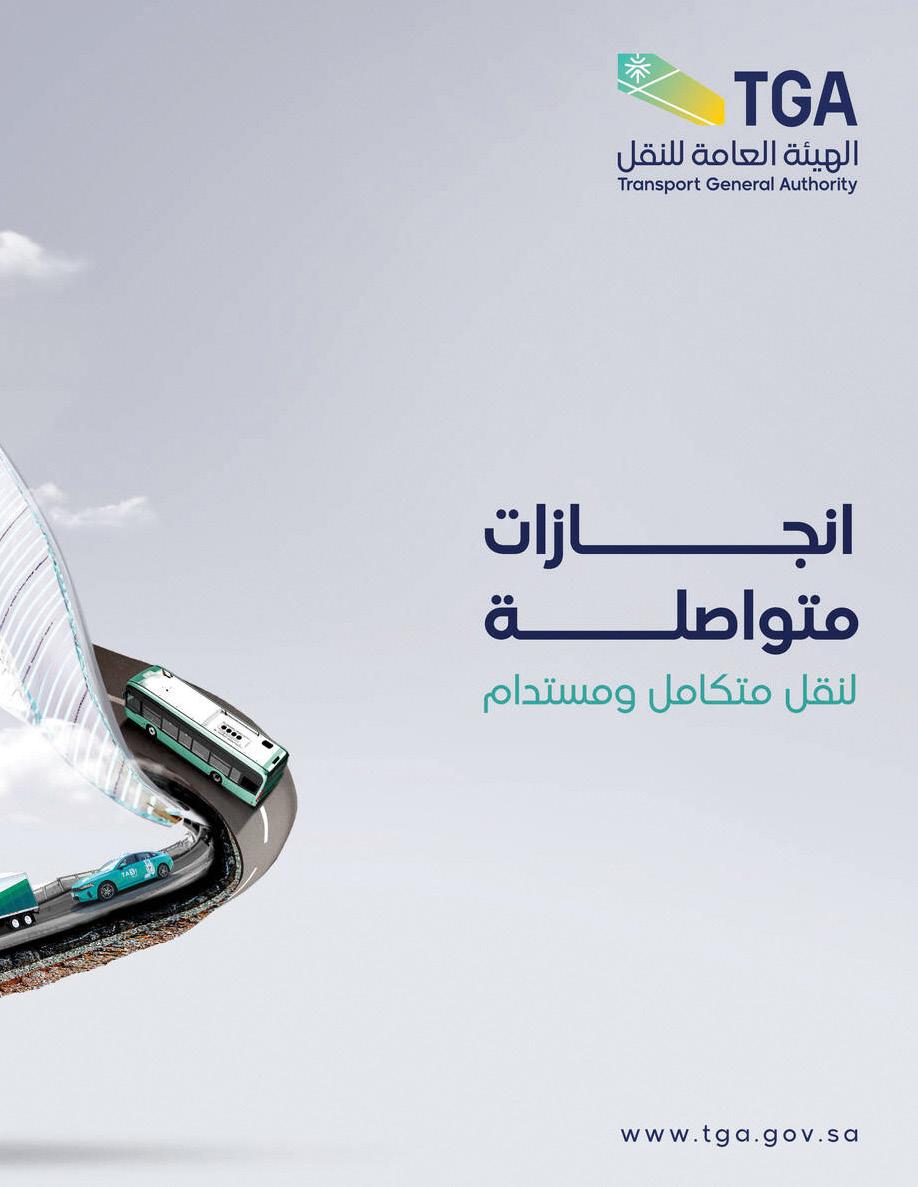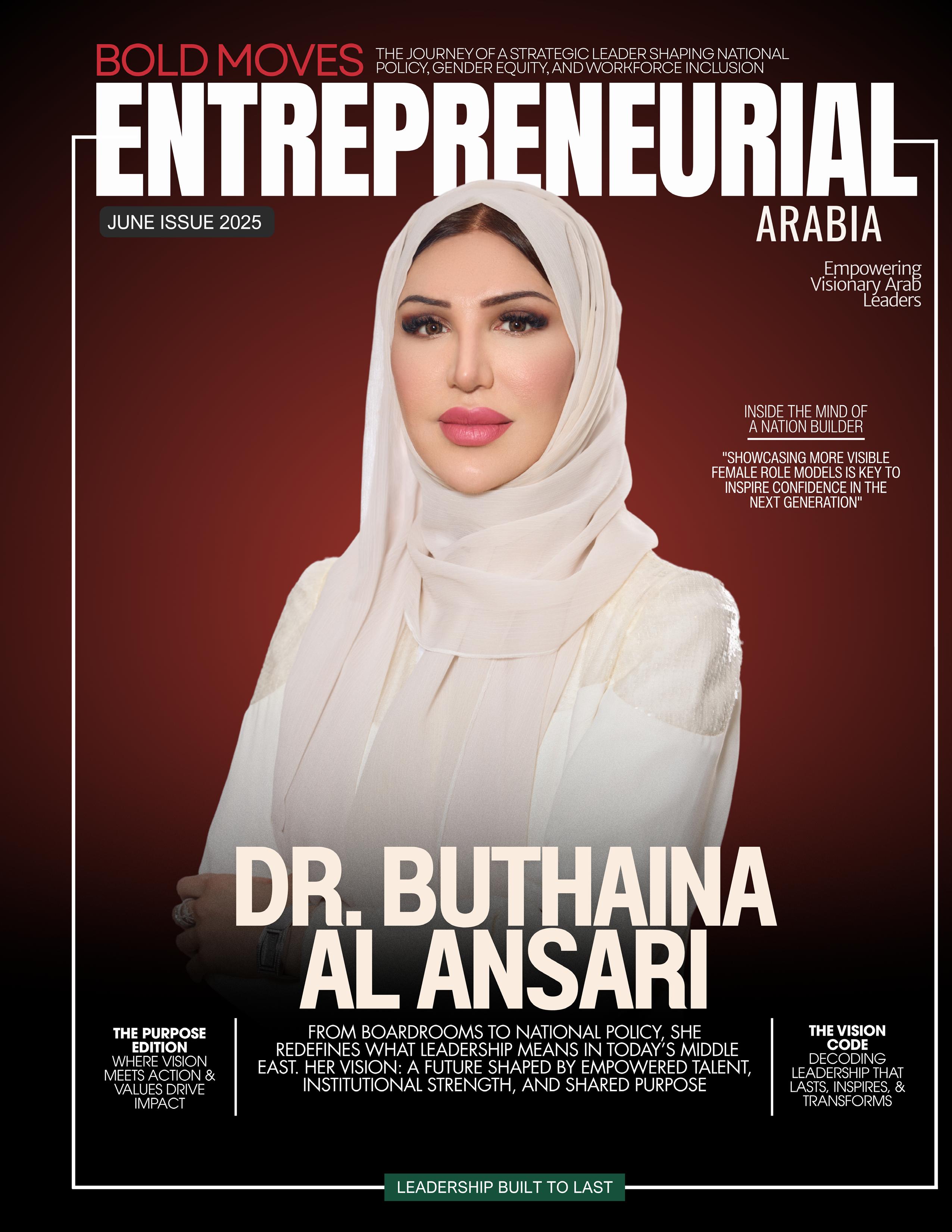

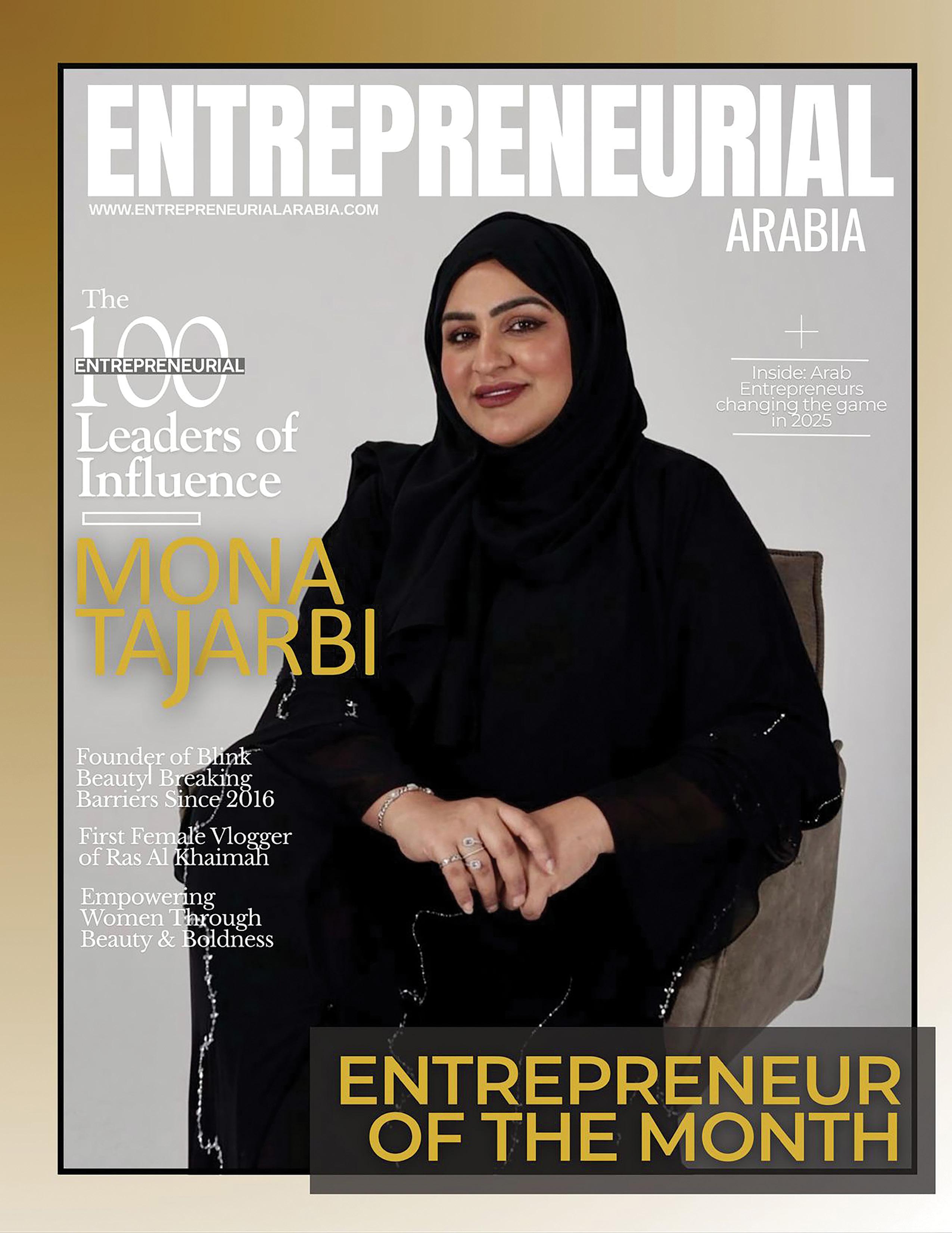
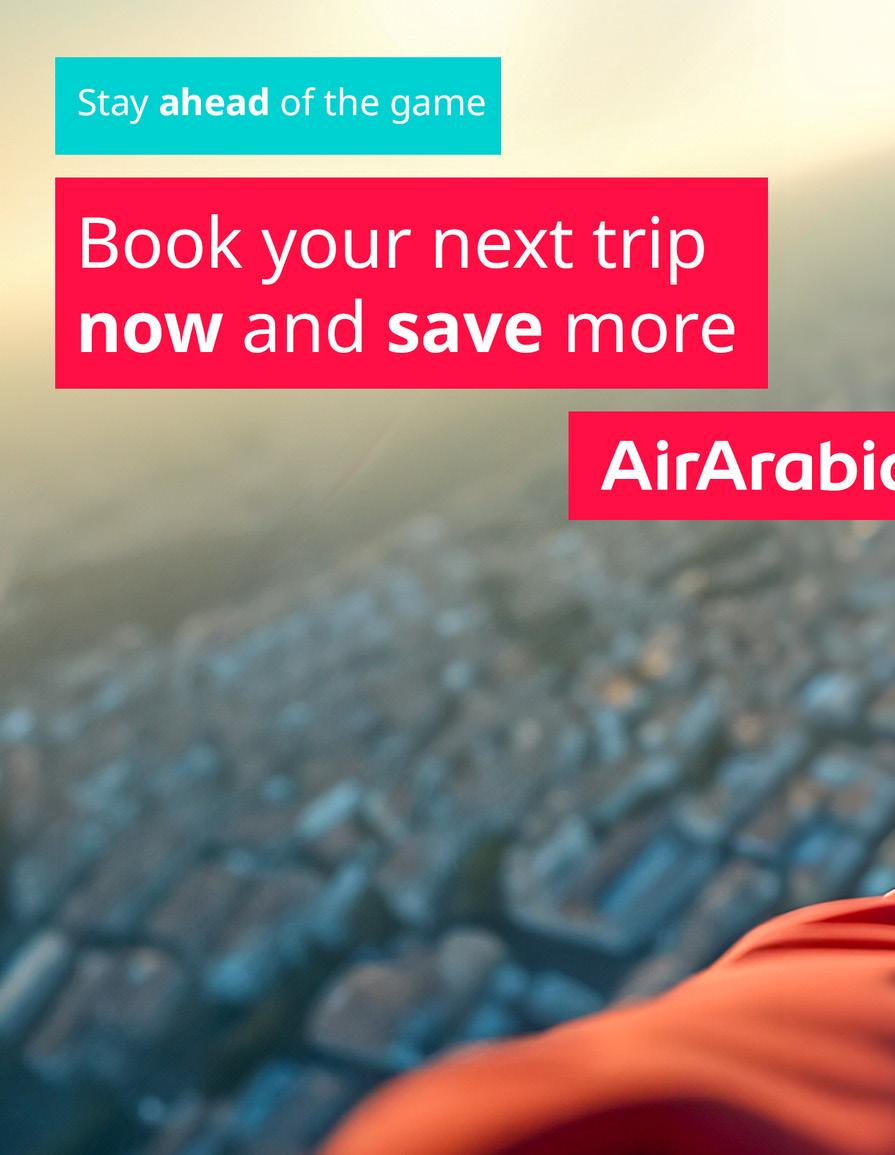










Media Director Entrepreneurial Arabia
Performance is being reimagined in the Gulf—redefined not by convention, but by consciousness.
Across boardrooms, startups, coaching rooms, and innovation labs, a new narrative is rising. One that places not just profit, but purpose at the core of leadership. One that sees performance not only in numbers, but in clarity, resilience, and impact.
This issue, Bold moves, is a tribute to the bold visionaries driving this evolution. At the forefront is our cover story featuring Dr. Buthaina Al Ansari, a pioneering strategist whose work has transformed not only institutions but the region’s approach to human capital and inclusive leadership. Her journey is one of structure and soul—where national policy meets mentorship, and where systems are designed not just to manage talent, but to elevate it. From Qatarization to boardroom equity, Dr. Buthaina’s legacy is one of intentional, people-centered transformation. Alongside Dr. Buthaina, we feature voices shaping not just businesses, but the human potential behind them.
From Dr. Corrie Block’s pioneering work in leadership psychology to Michael Mataraza’s deep dive into transformation coaching and John Mattone’s executive leadership insights, this issue brings together minds redefining how we think, lead, and perform. We’re also proud to share powerful perspectives from Zeta Yarwood, Adam Ashcroft, and Danielle Smith—each offering tools for self-mastery, resilience, and sustainable growth in an increasingly complex global landscape. This edition goes beyond strategy—it’s about the inner infrastructure of success.
What mindsets fuel sustainable achievement? How does emotional intelligence translate to executive excellence? And how can advisory, mentorship, and coaching build stronger entrepreneurial ecosystems across the Middle East?
Another vital thread running through this issue is the growing role of women in leadership and advisory.
From boardrooms to think tanks, women are increasingly shaping the dialogue around empowered leadership, decision-making, and legacy-building. Their presence is not symbolic—it’s essential. And it’s our privilege to spotlight their journeys throughout these pages.
We also explore the intersection of performance and well-being, recognizing that empowered leadership stems from balance—mental, emotional, and strategic. This holistic lens is no longer a luxury; it is a necessity for thriving in today’s business world.
Our goal is to offer more than just information—we aim to spark reflection.
In every feature, we ask: What does performance mean today? Is it scale without soul? Or is it about building legacies rooted in integrity, purpose, and collective impact?
As we turn the spotlight on entrepreneurs, advisors, coaches, and thinkers who are reengineering what success means in the Gulf, we invite you to reflect on your own journey. Whether you’re leading a multinational or launching your next venture, we hope this issue challenges and energizes you.
Here’s to performance redefined.
Here’s to leadership that empowers.
Here’s to the Gulf rising—with clarity, courage, and a conscious future.
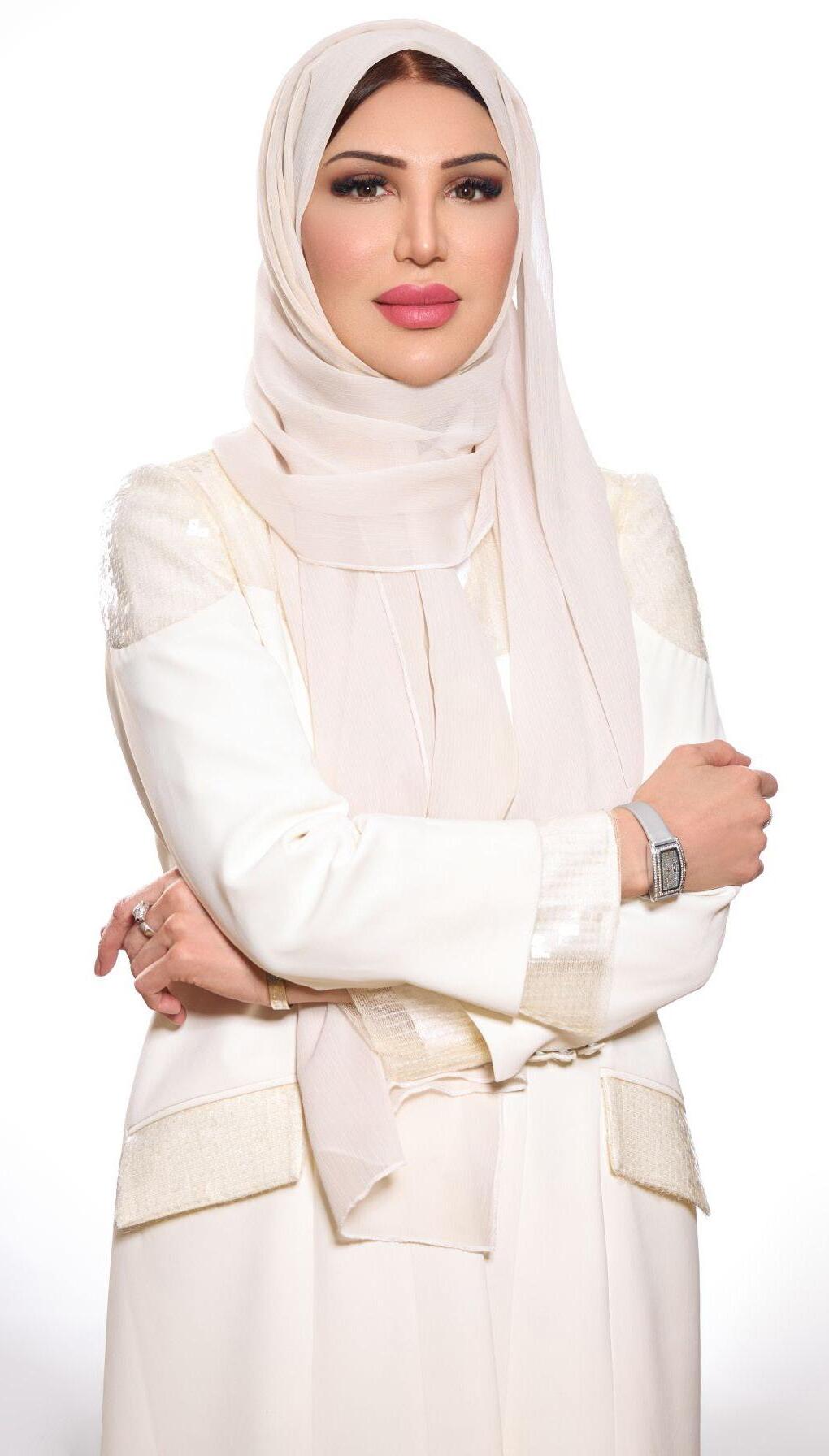
Rethinking Leadership for a Performance-Driven World How purpose-centered coaching is shaping future-ready leaders.
Empowering Leaders with Clarity and Confidence The coach helping Gulf leaders align purpose with performance.
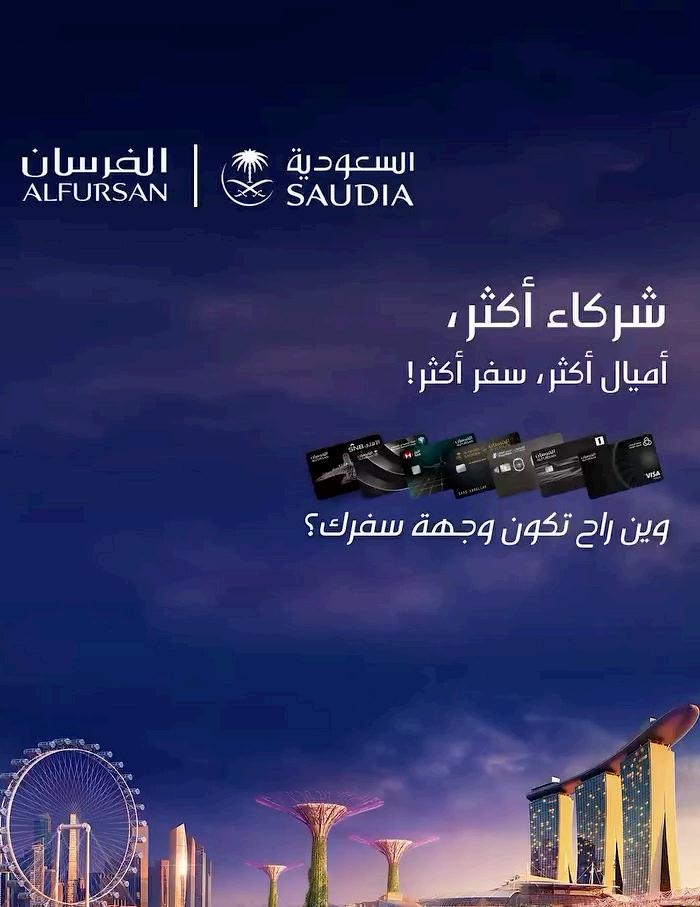
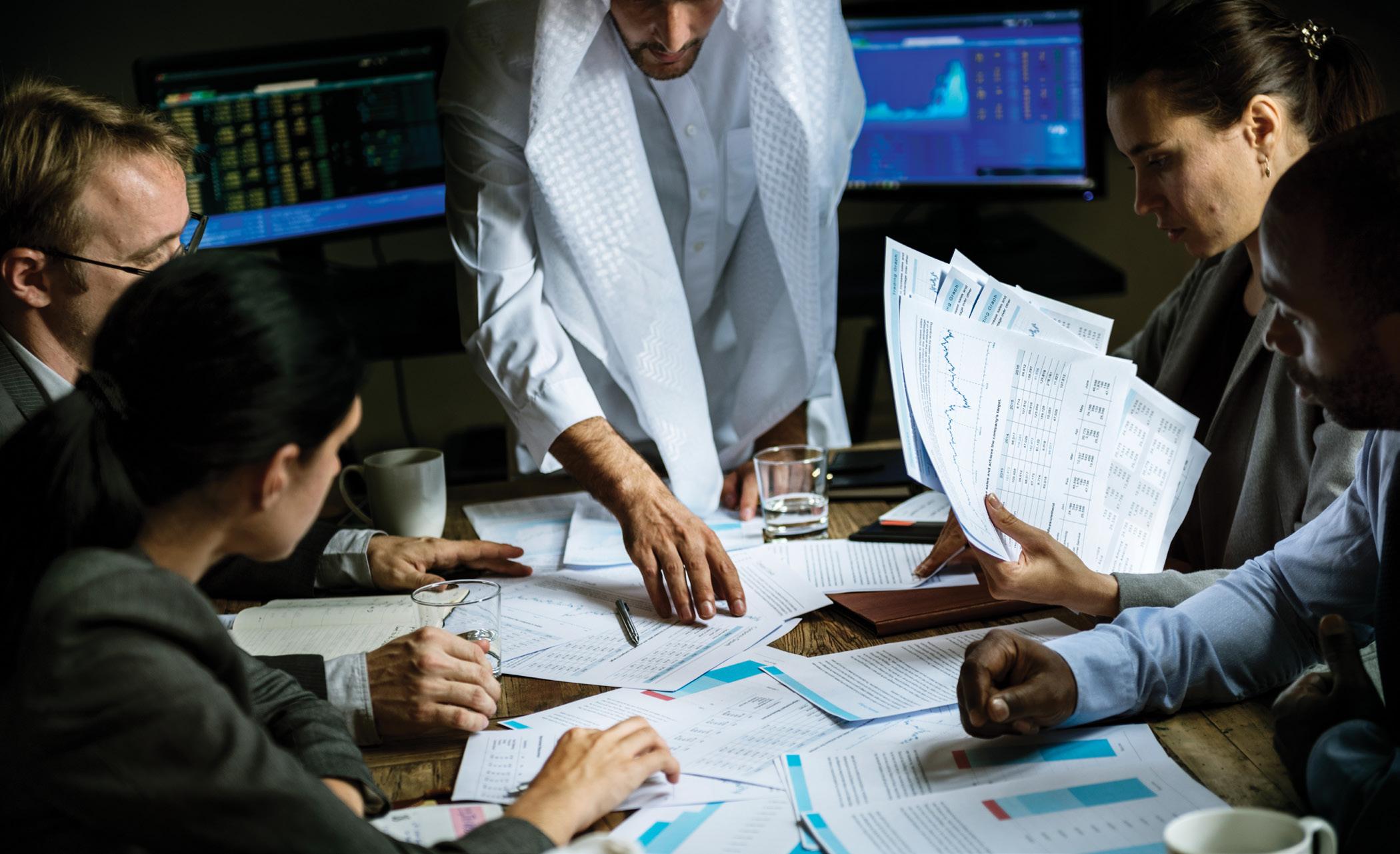
The Gulf region is no stranger to transformation—but what sets this current chapter apart is the level of intentionality behind the change. Driven by national visions, global shifts, and a recalibrated appetite for innovation, the Gulf is positioning itself not just as a regional heavyweight but as a formidable player on the global economic map.
Recent headlines reveal a story of ambition tempered by pragmatism. From AI ecosystems to venture capital flows, labor reforms to financial infrastructure, the Gulf is undergoing a significant business evolution—one rooted in performance and future-readiness.
Gulf stock markets have reflected a
cautious but tangible optimism. On June 10, Dubai’s main index edged up by 0.1%, supported by a strong 1.8% climb in Emirates NBD shares. Abu Dhabi and Qatar followed suit with gains of 0.5% and 1.3%, respectively. Much of this uptick is being credited to global market dynamics—particularly the resumption of U.S.–China trade dialogues, which have broader implications for commodity and logistics-linked economies like those in the Gulf.
Adding to the tailwinds, Saudi Arabia announced a modest reduction in oil shipments to China. This, combined with a slow but steady rise in crude prices, has buoyed investor sentiment across the region. The Gulf’s oil-linked economies still draw resilience from energy revenues, even as diversification efforts gain momentum.
Perhaps the most forward-looking development is the region’s acceleration in artificial intelligence. No longer relegated to white papers and think tanks, AI is now taking form as a cornerstone of national economic strategies. Both Saudi Arabia and the UAE are making bold plays in this arena.
Saudi’s Public Investment Fund (PIF) is backing the Humain project—an initiative focused on building sovereign AI capabilities, particularly Arabic-language models. Meanwhile, Abu Dhabi’s G42 and MGX, supported by regional heavyweight MGM, are rolling out high-performance computing infrastructure aimed at enabling region-specific AI applications across healthcare, security, education, and logistics.
These aren’t just experimental pilots—they’re multimillion-dollar commitments designed to position the Gulf as a hub for ethical, scalable, and regionally relevant AI. Analysts estimate these efforts could inject up to $150 billion into the regional economy over the next decade. However, the success of these ambitions will depend heavily on talent pipelines, data governance frameworks, and global trust in these homegrown systems.
Startup investment remains a bright spot in the Gulf’s business outlook. May saw 44 deals totaling $289 million across the MENA region—a 25% increase year-on-year. Fintech continues to lead the way, followed closely by B2B SaaS and logistics technologies. Notably, companies like WakeCap, a construction-tech startup providing real-time workforce visibility, have gained traction from both investors and enterprise clients.
But beneath this momentum lies a subtle shift. Corporate venture capital (CVC) rounds saw a 25% dip— suggesting a more conservative stance from legacy firms, possibly influenced by global inflation, supply chain complexities, and geopolitical caution. Sovereign funds and family offices remain bullish, but the pullback from corporate players may slow the pace of later-stage funding.
Still, the region’s long-term fundamentals remain strong. Regulatory innovation, access to growth markets, and capital availability continue to make the Gulf a compelling proposition for founders and investors alike.
No conversation about Gulf business strategy is complete without spotlighting the UAE’s relentless policy modernization. In May, the country rolled out a new digital work-permit system designed to simplify hiring processes for businesses and entrepreneurs. This is part of a broader strategy to digitize government ser-
vices and create a frictionless experience for companies operating in the region.
At the same time, the Ministry of Human Resources and Emiratisation (MOHRE) issued a directive for private-sector firms to increase Emirati representation by 1% before the end of June. This move aligns with the government’s push toward workforce localization—balancing international talent flows with meaningful national participation.
These reforms signal a shift from reactive policy to anticipatory governance—ensuring that the UAE not only attracts talent and investment but also develops internal capacity to sustain it.
Dubai’s real estate market continues its upward climb, driven in part by renewed international interest. The number of foreign-owned real estate firms has grown significantly in 2024–25, as Dubai and Ras Al Khaimah’s residential markets hit new pricing and transaction records.
Beyond residential gains, the financial services sector is also maturing. Abu Dhabi Global Market (ADGM) and Dubai International Financial Centre (DIFC) are expanding both their infrastructure and international reach. More financial institutions from Europe and Asia are seeking licenses, partnerships, or regional offices.
However, growth has not been without friction. Industry insiders point to regulatory overlap and infrastructure lags as occasional pain points. Coordinated efforts to standardize procedures and improve ease of doing business could further cement the Gulf’s standing as a finance-friendly jurisdiction.
What makes the Gulf’s transformation distinct is the level of coordination between public ambition and

private enterprise. Sovereign funds such as PIF, Mubadala, and ADQ aren’t just investors—they are ecosystem architects. Their capital is unlocking not just innovation, but infrastructure, employment, and global partnerships.
Whether it’s Saudi Arabia’s investments in AI education or the UAE’s support for climate-tech accelerators, governments are acting less as regulators and more as co-builders of a future-ready economy. This synergy is critical—especially as the region attempts to wean itself off hydrocarbons while remaining globally competitive.
Despite global headwinds, the Gulf’s economic narrative remains fundamentally optimistic. Sovereign capital is providing ballast where private caution lingers. Reforms are enabling rather than restricting. And new sectors—AI, clean energy, fintech, education tech—are being championed not just as trends, but as pillars of long-term national strategy
What we’re witnessing is not just the evolution of Gulf markets—it’s the emergence of a distinctive economic identity: performance-driven, innovation-minded, and globally integrated.

In the shimmering skylines of Riyadh, Dubai, and Abu Dhabi, something deeper than steel and glass is taking shape. A new generation of Gulf-born startups is stepping onto the global stage—armed with homegrown innovation, regional insight, and a distinctly inclusive ambition. These are not merely businesses; they’re movements, challenging the past while building the future.
At the heart of this surge is a startup like LOCAI, founded in Abu Dhabi in 2023 by Mohammad and Hasan Abu Sheikh. With its vision firmly rooted in the region’s transformation agenda, LOCAI is building vertical AI models tailored for the Gulf’s real-world challenges—healthcare, legal, education, and construction among them. Its six flagship AI tools, including “Mira” for customer service and “Razi” for
healthcare, are already streamlining operations across enterprises. With a remarkable $150 million Series A round raised in late 2023, LOCAI isn’t just keeping pace—it’s helping define the future of intelligent systems in Arabic-first contexts.
Not far away, in Dubai, SEEZ is reinventing how people buy cars. Co-founded by brothers Tarek and Andrew Kabrit, SEEZ blends artificial intelligence with automotive retail. It began as a car search engine and has since evolved into a full-stack auto-tech solution, integrating blockchain for vehicle registration and deploying intelligent chatbots like “Seezar” to guide buyers. Their recent Series B round raised over $21 million and confirmed SEEZ as a regional player with European expansion in its sights.
Meanwhile, Riyadh is emerging as a formidable center for AI-driven customer experience. LUCIDYA, launched in 2016, is making waves with its social listening and sentiment analysis platform capable of interpreting 15 distinct Arabic dialects with 92% accuracy. It now serves over 150 enterprise clients in 11 countries, offering companies a rare localised lens into customer perception. With a $6 million Series A round under its belt, LUCIDYA exemplifies the high-impact potential of Gulf-native intelligence solutions in a landscape that has long relied on Western-built tools.
But while these startups offer functional brilliance, some are chasing something even bigger: ecosystem transformation. Enter ASTRA TECH Backed by a network of strategic acquisitions, including Botim, PayBy,
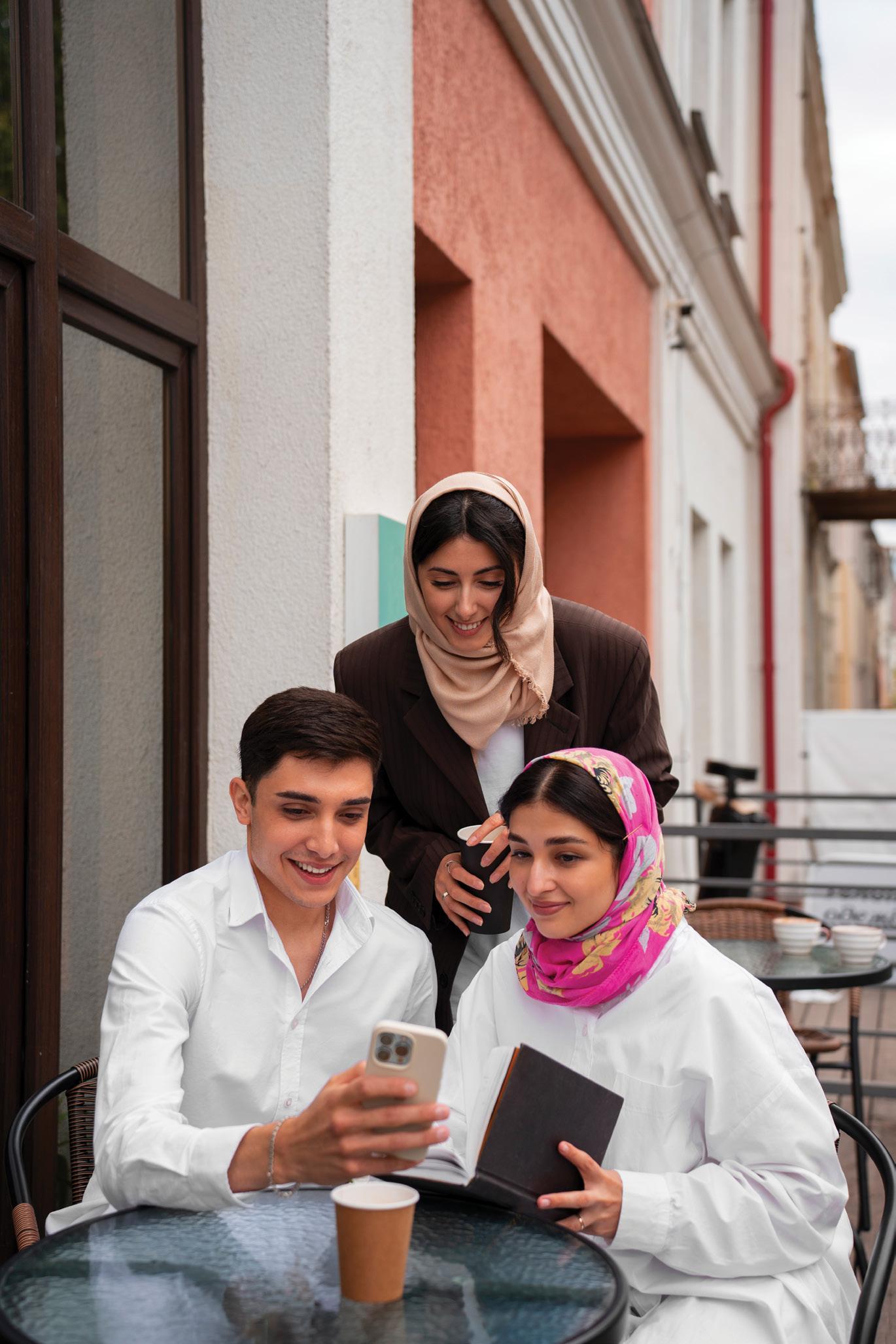
and Rizek, ASTRA TECH is building a regional “ultra-app” that combines financial services, communication, commerce, and logistics in one platform. With Botim boasting over 150 million users globally and new backing from players like MoneyGram and Mastercard, ASTRA TECH is shaping up as the Middle East’s answer to Asia’s super apps. Its ambitions are bold, but so is its execution.
Beneath the spotlight, lesser-known ventures are also redefining what it means to innovate inclusively. TI‑
GERPAY, a fintech startup recently recognized as one of the UAE’s most promising new companies, allows merchants to turn their smartphones into point-of-sale terminals—no hardware needed. For small businesses and micro-entrepreneurs across the Gulf, the implications are profound: access, affordability, and autonomy. Similarly, NEO MOBILITY is pushing the boundaries of green transport, deploying electric two-wheelers with battery swap stations accessible via QR codes. These seemingly simple solutions are not
only tackling environmental goals but making them practical, scalable, and locally relevant.
What ties these diverse ventures together is more than geography. It’s a common narrative of responding to regional needs with cutting-edge solutions, rooted in cultural fluency. Whether it’s building Arabic-native AI, facilitating cashless transitions for SMEs, or launching climate-resilient transport, these startups reflect a deep understanding of the Gulf’s present—and an unflinching vision for its future.
The numbers tell part of the story. In Q1 2025, Saudi Arabia alone drew $327 million in startup funding, a 45% year-on-year increase, according to Wamda and MAGNiTT. The UAE followed closely, bolstered by sovereign investments in AI, fintech, and sustainable mobility. Venture capital interest in the region has never been higher, and the sectors drawing attention—AI, fintech, edtech, mobility—align perfectly with the goals of national transformation agendas like Saudi Vision 2030 and the UAE Centennial 2071.
What’s more remarkable, perhaps, is the shift in how startups now function. No longer are they seen as fringe disrupters; in the Gulf, they are partners in policy, instruments of diversification, and blueprints for national progress. With initiatives like Abu Dhabi’s Hub71, Riyadh’s startup city program, and Dubai’s Future District Fund, governments are not just enabling innovation—they’re embedding it into their strategic DNA.
As the Gulf continues its evolution from oil dependency to a knowledge-powered future, these startups are more than tech success stories— they are cultural landmarks. They tell us that the region is not just catching up with the world, but defining how the future will look, in Arabic, from the inside out.
And that future is already here.
By Rosario De Sousa
Futures: Dr. Buthaina Al Ansari and the Architecture of Inclusive Leadership
Across the Gulf region, the discourse on women’s leadership is shifting—from possibility to precedent. In industries once marked by limited inclusion, a new standard of excellence is emerging, driven by those who understand that sustainable progress requires both vision and structural change. At the intersection of strategic development and human capital, a
distinct model of leadership is taking shape—one that is pragmatic, deeply informed, and committed to elevating others. Behind this evolution is a deliberate effort to challenge barriers, foster institutional accountability, and cultivate the conditions in which women not only participate, but lead. The impact of this work is measurable, its direction intentional, and its message clear: progress is built, not inherited.
Dr. Buthaina Al Ansari stands as one of the key architects of this change. A strategist, entrepreneur, and advocate for gen-
der equity, her work spans sectors critical to Qatar’s development—from human resources and national policy to entrepreneurship and education. As the founder of Tamkeen Training and Consulting and a board member of several leading organizations, she has shaped frameworks that prioritize both institutional excellence and individual empowerment. Her leadership is not defined by visibility alone, but by the systems she builds, the policies she influences, and the women she equips to lead with agency and confidence.
Dr. Buthaina’s focus on workforce development and Qatarization has been a consistent theme throughout her career. She sees it not just as a policy goal, but as a strategic foundation for the country’s future. When asked what shaped this commitment, she shared the experiences that guided her path.
“My journey has always been fueled by a deep belief that true national development begins with investing in human capital. Growing up witnessing Qatar’s rapid transformation, I realized that sustainable growth cannot be achieved solely through infrastructure or wealth — it must be anchored in empowering our people. Qatarization, to me, is not just a policy; it’s a strategic mission to build a resilient, knowledgeable, and future-ready workforce capable of carrying the nation’s aspirations forward. This conviction inspired me to champion workforce development at every stage of my career, ensuring that talent and potential are nurtured, not just managed.”
This perspective has not only shaped her work but has also influenced the broader conversation around how nations prepare for the future—by prioritizing the development of their people.
Her approach to leadership is rooted in a strong sense of responsibility—not only to her role, but to the broader goals of national development. For her, leadership is measured not by position, but by the impact it creates. When asked how she defines leadership in the context of nation-building, she explained:
“Impactful leadership, in the context of nation-building, is the ability to inspire collective ambition while creating tangible, long-term value for society. It’s about vision beyond
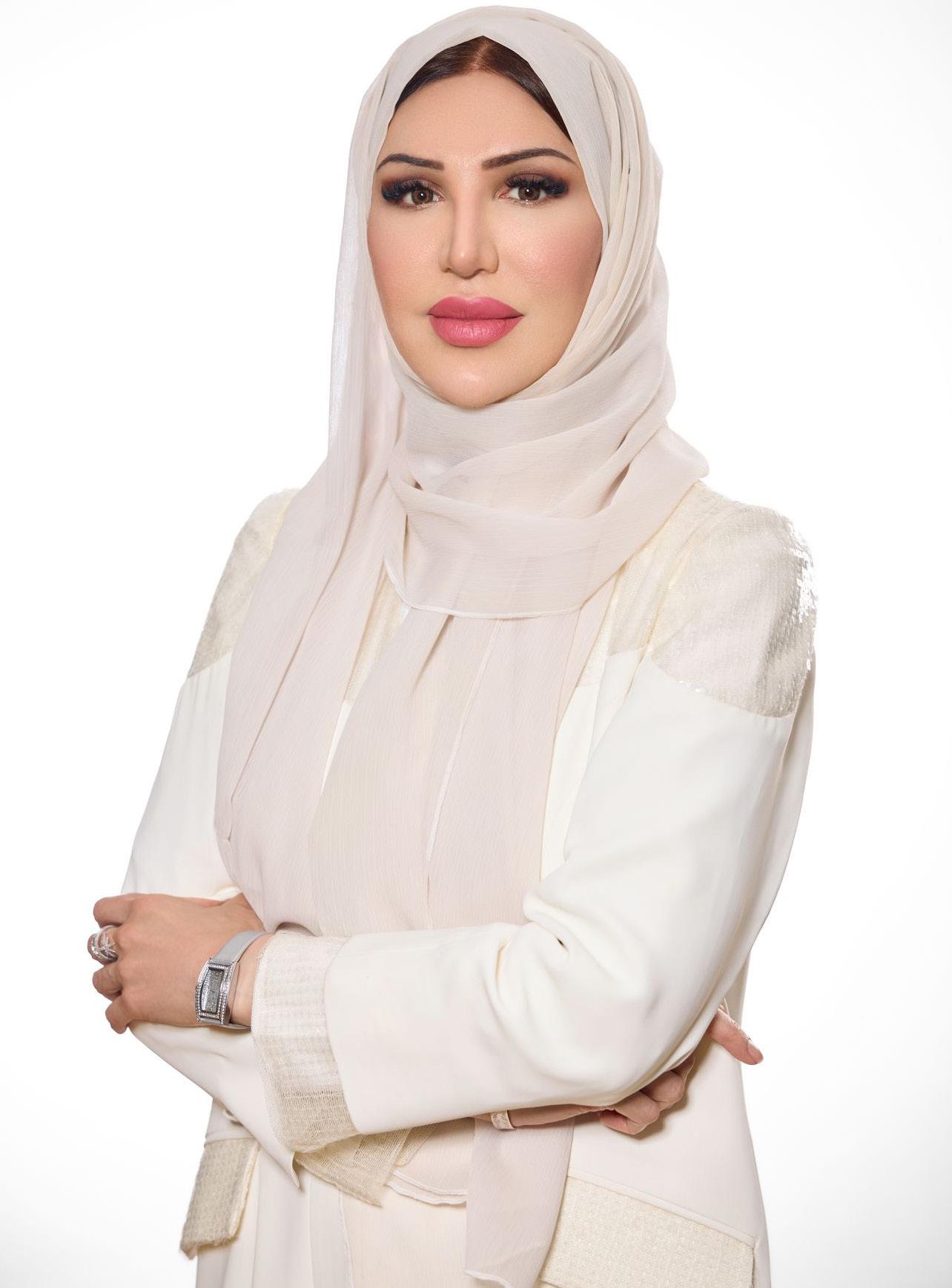
self-interest — a leadership that prioritizes building institutions, nurturing future generations, and aligning economic prosperity with social cohesion. True leaders invest in people, embrace innovation, and remain agile in the face of global change, ensuring their nation’s relevance, resilience, and dignity on the world stage.”
This definition underscores her belief that leadership is ultimately about stewardship—of people, institutions, and the future they will shape.
Drawing from her extensive experience in senior HR roles at institutions such as Ooredoo and the Qatar Investment Authority, she brings a deep understanding of what it takes to build strong, sustainable organizational cultures. When asked which HR strategies are most often underestimated in the pursuit of high performance, she highlighted two critical areas:
“One fundamental strategy often overlooked is the alignment of organizational purpose with individual meaning. Many institutions focus on policies and performance metrics, but fail to ignite a sense of belonging and shared mission within their workforce. High-perfor-
mance cultures are built when employees see themselves as active stakeholders in the organization’s journey, not just resources to be managed. Another overlooked aspect is leadership development at all levels — investing early in future leaders, not just reacting to leadership gaps when they arise. Building trust, transparency, and a culture of continuous learning are non-negotiable pillars for any high-performing organization.”
Dr. Dr. Buthaina’s emphasis on aligning organizational purpose with individual meaning is strongly supported by research. A 2022 McKinsey & Company study found that employees who find purpose at work are four times more likely to be engaged and five times more likely to remain with their organization long term. Similarly, the Center for Creative Leadership highlights that early and continuous investment in leadership development is a key driver of organizational agility and innovation. These findings reinforce the idea that performance is not driven solely by policy or structure—but by people who feel connected, valued, and equipped to lead.
During her time at Ooredoo, Dr. Buthaina approached Qatarization not as a mandate to be managed, but as a strategic opportunity to drive inclusion and sustainable growth. One of the core challenges, she recalls, was “shifting perceptions — both among young Qataris and within the corporate environment.”
Many emerging professionals lacked structured guidance, clear career trajectories, and, crucially, the confidence that their contributions could shape the future of the organization.
Internally, the task was to reframe Qatarization as more than a compliance requirement.
“It was essential to move Qatarization from being seen as a compliance metric to a business im-
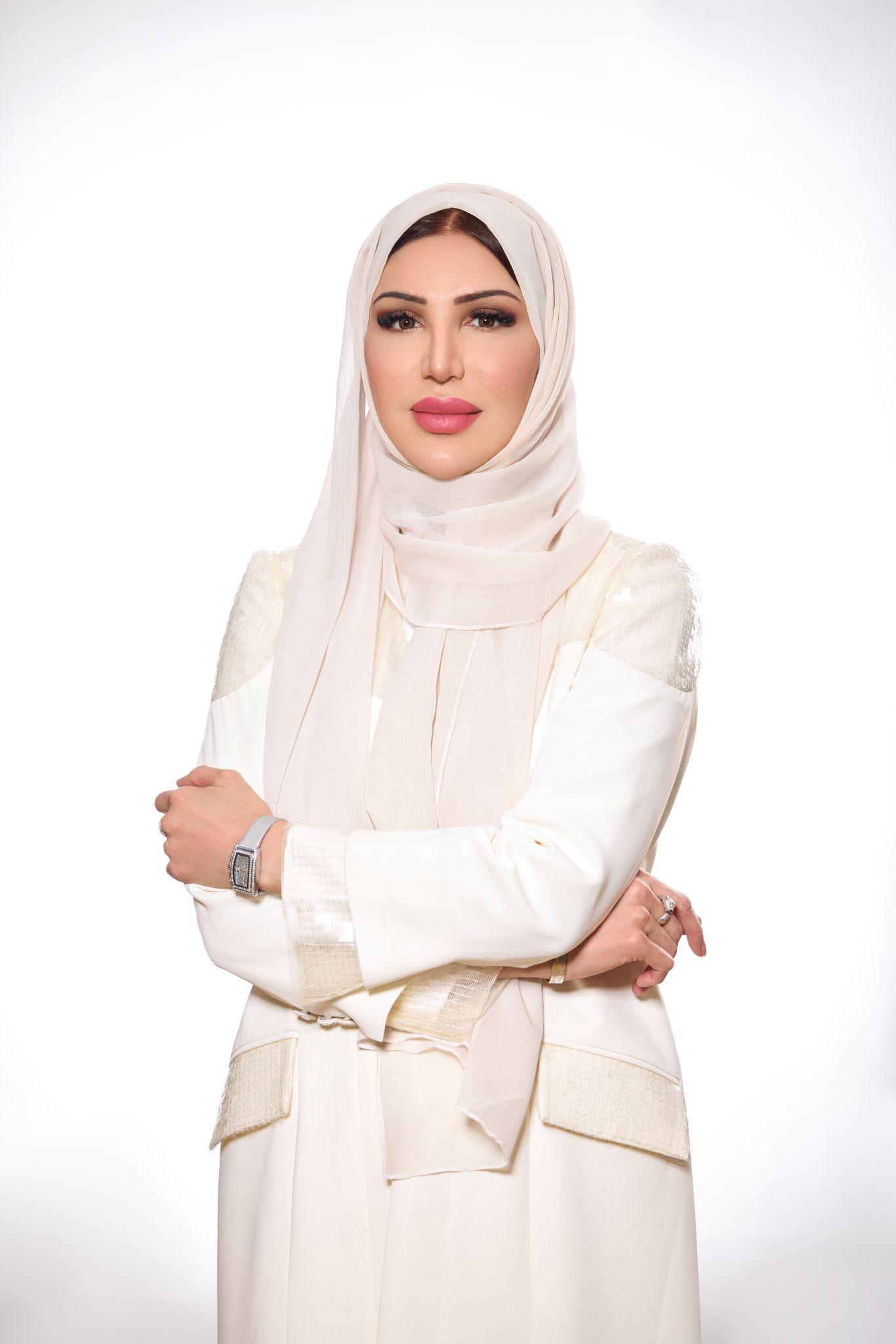
perative tied to sustainable growth,” she explains.
That shift required deliberate action: the launch of integrated talent development programs, strategic partnerships with educational institutions, and a cultural shift that put national success stories at the forefront.
For Dr. Buthaina, the goal was clear: “It was about humanizing the policy and making it a national pride, not just a corporate requirement.”
Advancing women into leadership roles remains one of the most pressing challenges—and opportunities—for organizations across the region. While meaningful strides have been made, Dr. Al Ansari emphasizes that progress must move beyond surface-level commitments. For her, real inclusion starts when companies embed equity into the core of how they operate.
“We must embed diversity and inclusion into organizational DNA — not as corporate slogans, but as measurable priorities linked to leadership accountability,” she stresses.
She also points to the importance of practical, structural tools: clear promotion criteria, mentorship and sponsorship programs, and more inclusive leadership pipelines. Just as vital is the work of cultural change—challenging unconscious bias and increasing the visibility of female role models. As she notes, “Showcasing more visible female role models [is key] to inspire confidence in the next generation.”
Her vision is both strategic and personal: a leadership structure where women rise not through exception, but through expectation.
Building inclusive workplaces in the Middle East requires more than isolated corporate efforts—it demands a coordinated push from both public and private sectors. Dr. Al Ansari believes that true progress comes when governments and businesses act as partners in shaping inclusive ecosystems.
“Governments can set the tone through progressive policies, incentives, and public-private initiatives focused on gender equity,” she explains.
But legislation alone isn’t enough. For real change to take hold, she argues, corporations must go beyond regulatory compliance.
“Corporations must move from compliance to commitment — embedding inclusion into leadership evaluations, KPIs, and company culture.”
The most effective efforts, in her view, are collaborative—joint investments in leadership development, entrepreneurship platforms, and education that begin early and reach broadly. This kind of
alignment, she suggests, is key to creating sustainable and inclusive growth across the region.
Driving organizational change requires more than technical expertise—it demands courage, clarity of purpose, and a willingness to challenge the status quo. For Dr. Al Ansari, successful transformation is never about change for its own sake.
“Change must be purposeful, people-centered, and aligned with strategic vision,” she says.
Her approach starts with listening—to data, to employees, and to the broader mission—and then acting decisively and with intent.
This mindset has defined some of the boldest moves in her career. One standout example was her decision to push for a complete overhaul of traditional talent management systems.
“It involved restructuring reward mechanisms, introducing merit-based promotions, and challenging long standing norms,” she recalls.
The decision came with risk—and initial resistance—but the longterm results spoke for themselves: increased engagement, improved retention, and a healthier leadership pipeline.
Ultimately, her view of change is rooted in leadership. “It’s a chance to set a new standard of excellence and resilience,” she says—an opportunity not just to improve systems, but to redefine what’s possible.
For Dr. Al Ansari, education has never been separate from leadership— it’s the foundation of how she leads. Her academic journey, culminating in a Ph.D. in Business Administration, has shaped her decision-mak-
ing with a rare combination of analytical rigor and forward-looking vision.
“It taught me to think critically, analyze systems deeply, and make decisions based on a balance of data, intuition, and long-term vision,” she reflects. Academia didn’t just sharpen her thinking—it instilled a respect for diverse perspectives and a lifelong commitment to evidence-based leadership.
That same philosophy extends to how she views leadership in a fast-changing world.
“Continuous learning is no longer optional; it is essential for survival and relevance,” she asserts.
Dr. Al Ansari believes that adaptability, curiosity, and humility are what distinguish enduring leaders. As she puts it, “Lifelong learning is the only way to remain visionary in an ever-evolving world.”
Every leader’s path is shaped by the people who walk beside them, and for Dr. Al Ansari, mentorship has been both formal and quietly influential.
“Some were formal mentors; others influenced me simply through their example — demonstrating resilience, wisdom, and unwavering commitment to service,” she says.
Her journey was also lit by the trailblazing women who came before her, proving that leadership is not a privilege to be claimed, but a responsibility to clear the way for others.
To the next generation of female leaders across the Arab world, her message is direct and urgent:
“Don’t wait for permission to dream big or to lead boldly. Your voice, vision, and courage are needed now more than ever.”
In her view, leadership is not about conforming to legacy expectations — it’s about rewriting the narrative
with authenticity and purpose.
At this stage in her career, Dr. Al Ansari’s focus has shifted from breaking barriers to building futures. Her current work centers on empowering women in high-impact sectors like artificial intelligence and strategic governance—fields she sees as central to shaping the region’s longterm resilience. She is also channeling her efforts into connecting education, leadership development, and entrepreneurship to cultivate sustainable economic ecosystems for the next generation.
Looking ahead, her vision is rooted in legacy.
“It is about planting seeds that will flourish long after my journey evolves,” she says.
Professionally, she remains committed to influencing national and regional strategies that prioritize human capital and economic diversification. Personally, she’s focused on mentoring the next generation of change-makers—leaders who will carry forward the values of service, innovation, and ethical stewardship.
Dr. Buthaina Al Ansari’s journey is a proof of what purposeful leadership can achieve — not only within institutions, but across an entire nation’s trajectory. Her work continues to shape the future of Qatar’s workforce, inspire the advancement of women in leadership, and redefine what inclusive, values-driven leadership looks like in the Arab world. As she shifts her focus toward legacy and mentorship, her impact endures in every empowered leader, every bold reform, and every young voice rising with confidence to help shape the region’s future.


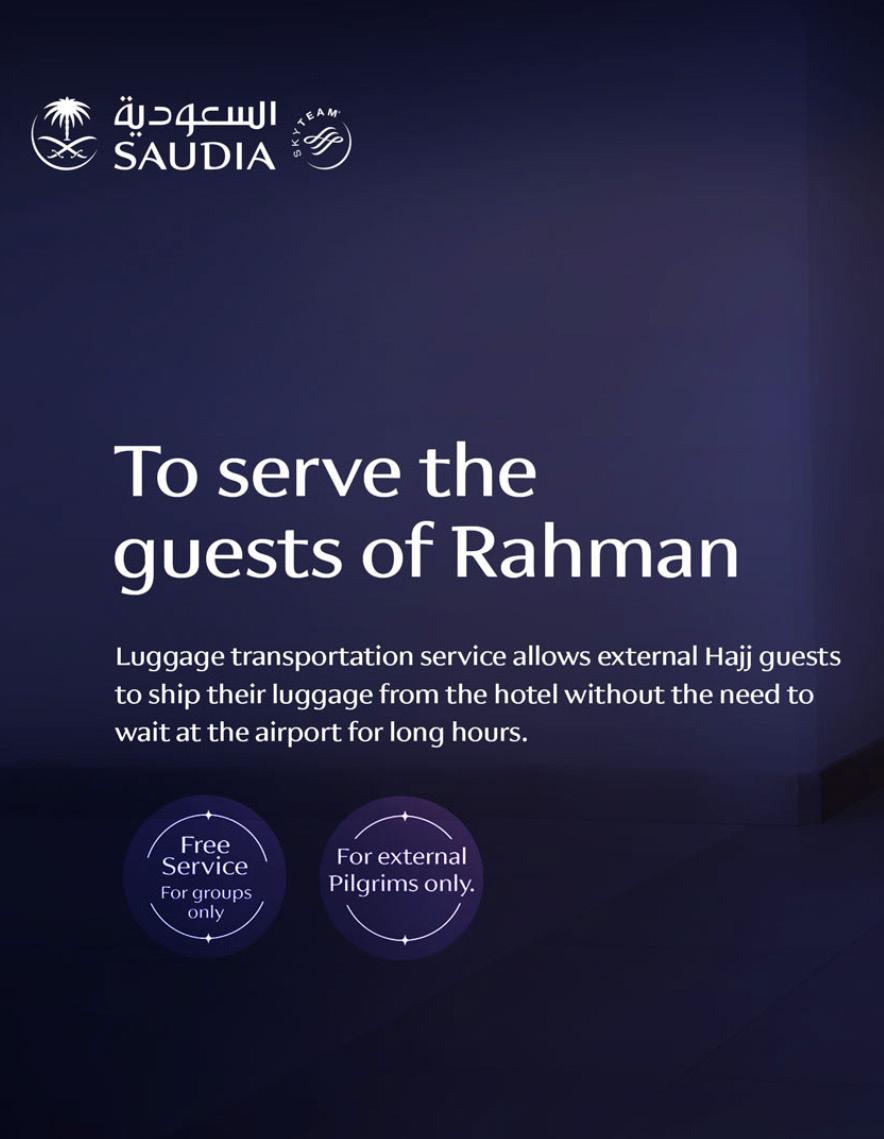


There’s an old saying in sales circles that success comes down to grit, grind, and good products. But anyone who’s spent time on the front lines—whether pitching enterprise software, real estate, or luxury cars—knows that’s only part of the story. The real difference between average performers and those who consistently hit (and exceed) targets often lies in something less visible but far more powerful: psychology.
High-performance sales isn’t just about the pitch deck or closing techniques. It’s about understanding human behavior—yours and your
client’s—and using that insight to navigate conversations, build trust, and ultimately, seal the deal.
We spoke to sales leaders, behavioral experts, and entrepreneurs who’ve scaled the steep learning curve to uncover the mindset and psychology that drives consistent, top-tier sales performance.
The best salespeople aren’t just persuasive—they’re tuned into their own mental game. Confidence, resilience, and adaptability are as important as product knowledge. But here’s the
secret: that confidence isn’t some innate personality trait. It’s trained.
Top sales professionals often engage in mental conditioning as seriously as athletes do. They rehearse objection handling, visualize successful meetings, and prime themselves to stay calm under pressure.
“If you believe the client is doing you a favor by meeting you, you’ve lost before you’ve begun,” says Omar Khalid, a senior regional sales director based in Dubai. “You have to show up with quiet conviction that what you’re offering adds real value.”

That mental framing doesn’t just impact how you feel—it shapes how you come across. Clients pick up on hesitation, even subtle uncertainty. The reverse is also true: quiet, authentic confidence builds trust faster than any clever pitch.
Forget aggressive sales tactics or slick rehearsed lines. High-performing salespeople are emotionally intelligent before they’re anything else. They listen more than they speak. They read between the lines. And they adjust their approach based on the client’s mood, personality, and concerns.
Sales psychologist Dr. Rana Hassan, who’s coached teams across Europe and the Middle East, points out that emotional awareness is one of the most underappreciated sales skills. “Most salespeople focus on what they’ll say next,” she explains. “The
best focus on how the client feels right now—and why.”
That means noticing tension in body language. It means hearing the concern behind the question. It means pausing when a client is skeptical rather than bulldozing ahead.
It’s not about manipulation. It’s about tuning in, building real rapport, and meeting the person across from you where they are emotionally—not where you wish they were.
Ask any high performer in sales what they’ve mastered, and they’ll say: rejection. It comes with the territory. But what separates the best from the rest is how they interpret that rejection.
“Average performers take rejection personally,” says Sara Patel, who’s led enterprise sales for fintech firms
across the Gulf. “High performers treat it like data.”
That doesn’t mean they enjoy hearing “no.” But they’ve learned not to let it rattle their self-worth. Instead, they analyze the process. Was the timing wrong? Was the product a mismatch? Did they miss a buying signal? Rejection becomes feedback, not failure.
This mental reframe keeps top salespeople in the game longer. They bounce back faster. They refine their approach without falling into selfdoubt. It’s not a bulletproof mindset, but it’s a resilient one.
Clients can spot a scripted salesperson a mile away. They can also sense when the person sitting across the table genuinely believes in what they’re selling.

High performers aren’t just product experts—they’re advocates. They’ve taken the time to understand how their solution improves lives, businesses, or processes. That belief shows up in their tone, their storytelling, and their energy.
“No one’s buying software from someone who doesn’t sound like they care,” says Karim Al-Bashir, a tech founder based in Riyadh. “I tell my team: If you can’t connect with the ‘why’ behind our product, clients never will.”
It’s not about overhyping. It’s about quiet, authentic conviction. When that comes through, skepticism softens, objections shrink, and clients lean in.
The old-school sales narrative paints
closing the deal as a hard, aggressive push—the decisive moment where the rep swoops in and wins. But top performers approach it differently. They guide rather than pressure.
High-performance sales is built on trust. It’s about helping clients reach a decision that feels right for them. Often, that decision is a yes—but it’s not forced.
“You can’t rush someone into a deal and expect a long-term relationship,” explains Dr. Hassan. “The psychology of high-performance sales is about building comfort and clarity, not creating artificial urgency.”
This mindset also keeps salespeople from over-talking or pushing when silence is more effective. It allows them to pause, listen, and let the client process—a subtle but powerful psychological tool.
Sales is unpredictable. Market conditions shift. Budgets freeze. Decision-makers change. Top performers embrace the uncertainty.
They’re curious, adaptable, and willing to ask better questions. They don’t assume they know everything about the client or situation. Instead, they approach conversations with a learner’s mindset.
This humility often gives them the edge. They uncover hidden priorities. They build deeper relationships. And they avoid the complacency that comes with overconfidence.
In high-performance sales, predictability isn’t the goal—resilience and curiosity are.

Yes, sales requires energy and drive. But the top 5% don’t rely on bursts of adrenaline—they build systems.
Daily routines. Consistent follow-ups. Detailed note-taking. Time blocks for prospecting. Regular self-review. These aren’t glamorous, but they work.
The psychology here is simple: discipline beats motivation. High performers remove as much randomness from their process as possible, so even on tough days, their pipeline stays healthy.
They also set realistic, incremental goals. Rather than chasing massive quarterly numbers with last-minute scrambles, they chip away steadily, turning targets into manageable milestones.
Sales techniques matter. Product knowledge matters. But talk to anyone consistently at the top of their field, and they’ll tell you: success starts between the ears.
It’s the mindset to handle rejection. The emotion-
al awareness to build trust. The curiosity to keep learning. The belief in the product. The discipline to do the work, even when no one’s watching.
High-performance sales isn’t a hack. It’s a cultivated way of thinking, reacting, and engaging.
In a world full of noise, algorithms, and automation, the human side of sales is more important than ever. Clients crave authenticity. They want to be understood, not sold to. They can tell the difference.
And for those willing to invest in the psychological side of their craft—the mindset, the emotional intelligence, the belief, the habits—the rewards go beyond commission checks. It’s the satisfaction of knowing you’re not just closing deals—you’re building relationships, solving real problems, and elevating your own potential in the process.
Sales will always be part art, part science. But the quiet driver behind it all? The psychology. Master that, and the rest tends to follow.

Founders wear many hats. Visionary, strategist, recruiter, product developer, brand ambassador— the list goes on. But there’s one role that quietly determines whether all those other hats matter: salesperson.
It doesn’t matter how innovative your product is or how brilliant your pitch deck looks—if you can’t sell, you can’t scale. The harsh reality is that for most startups, sales isn’t just another department. In the early days, it’s the lifeline. And yet, it’s the one area where many founders are underprepared— and often, unaware of just how much they don’t know.
That’s whe re a sales coach comes in. Not a consultant who parachutes in to close a deal. Not a generic “growth guru” with vague motivation. A real sales coach—someone who helps founders master the psychology, strat-
egy, and execution of sales so they can lead from the front, build a sales culture, and set the tone for sustainable revenue growth.
If you’re building a business and still debating whether you need one, here’s the straight talk: every founder needs a sales coach. Here’s why.
In the early days, investors aren’t betting on your product—they’re betting on you. Customers aren’t buying your software—they’re buying your story, your credibility, your ability to solve their problem.
A good sales coach understands this founder dynamic. They don’t just teach sales techniques—they equip you to be the storyteller, the closer, the ne-
gotiator, and the trusted partner your clients expect.
Many technical founders underestimate this. They think if the product is good enough, it’ll “sell itself.” It rarely does. Even the best products need a founder who knows how to pitch, handle objections, and close.
A sales coach builds that skill set early, saving you months—sometimes years—of trial, error, and missed opportunities.
There’s a persistent myth in the startup world that great salespeople are born, not made. You either have the gift of the gab, or you don’t. But seasoned founders know the truth: sales is a process.
From prospecting to discovery, from qualification to closing—sales follows a rhythm, and a repeatable one at that. But like any process, it needs to be learned, refined, and mastered.
A sales coach demystifies that process. They help founders break sales down into practical, achievable steps:
• How to structure a discovery call
• How to ask questions that uncover real pain points
• How to position your product in a crowded market
• How to overcome pricing objections with confidence
• How to track metrics that actually matter
When you work with a coach, you stop guessing and start executing with intention.
Founders set the tone, especially in early-stage companies. If you treat sales like an afterthought, so will your team. If you stumble through pitches or shy away from tough negotiations, your future sales hires will absorb those patterns.
A sales coach helps you build not just personal skill, but the foundation of a high-performance sales culture.
That means:
• Creating accountability for pipeline management
• Normalizing regular deal reviews and feedback loops
• Building confidence in pricing conversations
• Modeling how to handle rejection and bounce back
By investing in your own sales development, you’re investing in your future sales team’s success.
Sales anxiety is real—yes, even for founders. It shows up as hesitation in pricing conversations, fear of rejection, or an over-reliance on email instead of direct conversations.

The most effective founders don’t magically have confidence—they’ve built it through practice, feedback, and coaching.
A sales coach accelerates that process. They provide a safe space to role-play tough conversations, analyze
what’s working (and what’s not), and equip you with strategies to handle real-world selling situations.
With time, that confidence compounds. You stop fearing sales conversations—and start leading them.

Fundraising is sales. Partner negotiations are sales. Recruiting top talent is sales.
Founders often think “sales” only applies to customer acquisition. But in reality, the same skills underpin nearly every critical conversation you’ll have.
A sales coach broadens your understanding of influence, negotiation, and relationship-building across all fronts. They help you refine your pitch—not just to buyers, but to investors and key stakeholders. They help you anticipate objections and position your vision with clarity and conviction.
In short, they prepare you to sell the most important product you’ll ever offer: your company.
One of the biggest misconceptions about sales is that success depends on having the slickest pitch or the most polished demo. In truth, high-performance sales is rooted in listening.
The best salespeople—and by extension, the most effective founders—ask the right questions, uncover real needs, and position their product as a solution.
A sales coach trains founders to:
• Ask discovery questions that go beyond surface-level pain points
• Listen for unspoken objections or concerns
• Understand buyer psychology and decision-making processes
• Tailor the conversation based on what they learn, not what they assume
• Without this skill set, even the best product demo falls flat. With it, average conversations become closing opportunities.
Selling as a founder isn’t like selling as a regular sales rep. You carry the weight of the company’s vision, the product roadmap, and sometimes, your personal credibility.
That means:
• Prospects ask tougher questions You navigate strategic deals that impact your company’s future
• Rejection feels personal because the business is your creation
A sales coach who understands the founder experience helps you manage these unique pressures. They provide objective feedback, strategic insight, and the tactical support to navigate founder-led sales successfully.
Some founders are naturally charismatic. They can build
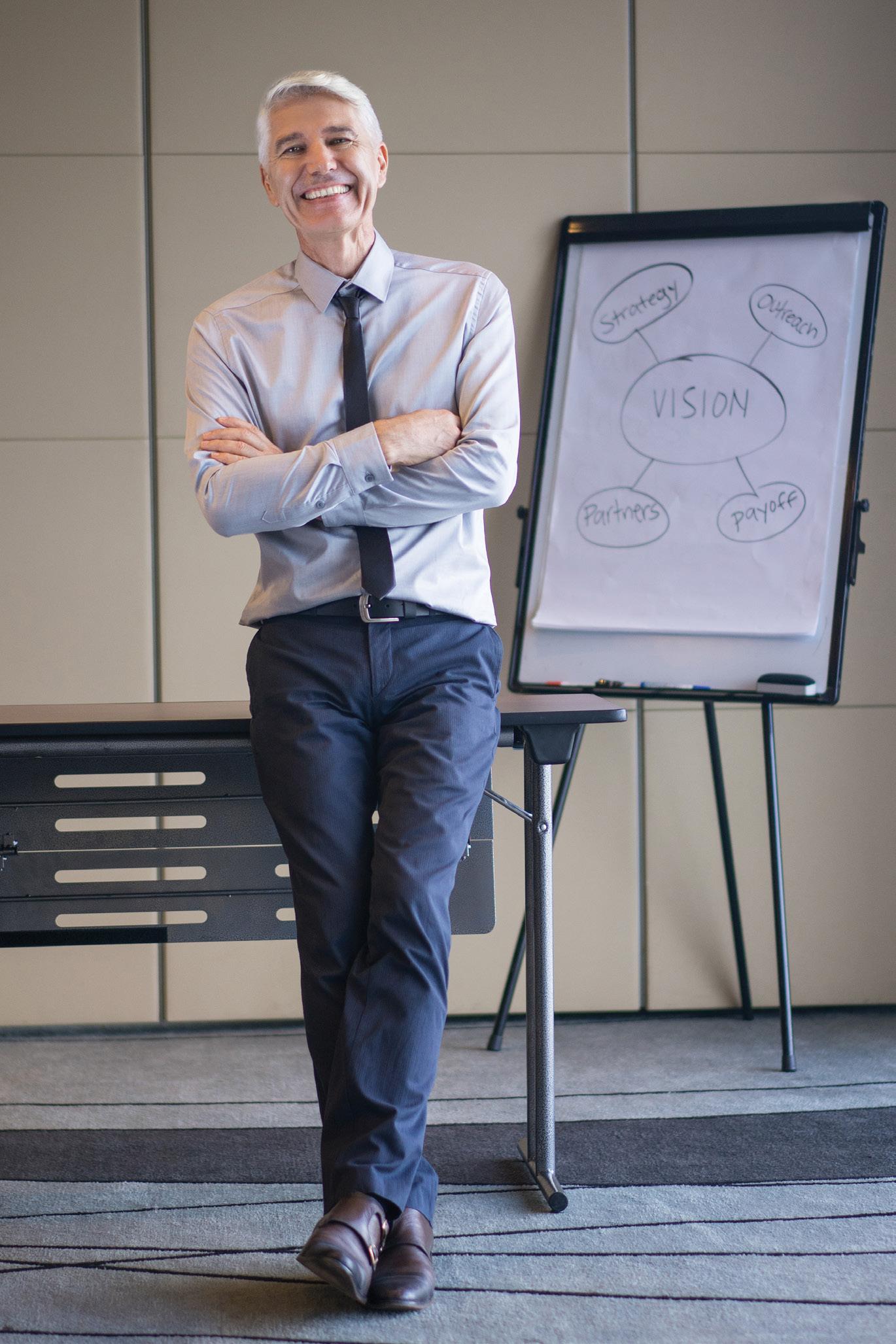
rapport quickly. They’re confident in conversations. But even they have blind spots.
May be they:
• Talk too much and miss buying signals
• Avoid structured follow-up
• Get caught off-guard by pricing pushback
• Struggle to scale their skills across a growing team
A good sales coach helps sharpen
strengths and eliminate weaknesses. They bring structure to natural talent. They turn good instincts into consistent, scalable processes.
Could you figure out sales by trial and error? Probably. But the opportunity cost is enormous.
Every misstep—poorly handled objections, lost deals, pricing mistakes—delays growth. It slows product-market fit. It erodes confidence, both yours and your team’s.
A sales coach accelerates the learning curve. They help you avoid common pitfalls, refine your approach faster, and capitalize on momentum.
In a startup, speed matters. Getting your sales approach right in year one can mean the difference between scaling or stalling in year two.
Some founders hesitate to get sales coaching because they think it signals inexperience. The reality is, seeking expert input is a hallmark of high performers.
Top athletes have coaches. Leading CEOs work with executive mentors. High-growth founders invest in sales coaching because they understand that growth isn’t just about products or markets—it’s about mastering influence, persuasion, and revenue generation.
Sales is too important to wing. And your business is too important to stall because of preventable mistakes.
Every founder needs to sell. But not every founder is naturally equipped to do it well. That’s not a weakness— it’s a reality of the role.
The good news? Sales is a skill. It can be learned, practiced, and refined. With the right sales coach, you accelerate that process. You build the confidence, structure, and strategy to lead your business with conviction. You avoid the most common sales pitfalls. You create a foundation your future sales team can build on.
And most importantly, you shift from fearing sales conversations to owning them—one meeting, one deal, and one lesson at a time.
If you’re building something worth selling, it’s worth investing in the skills to sell it. And for founders, that starts with a sales coach.
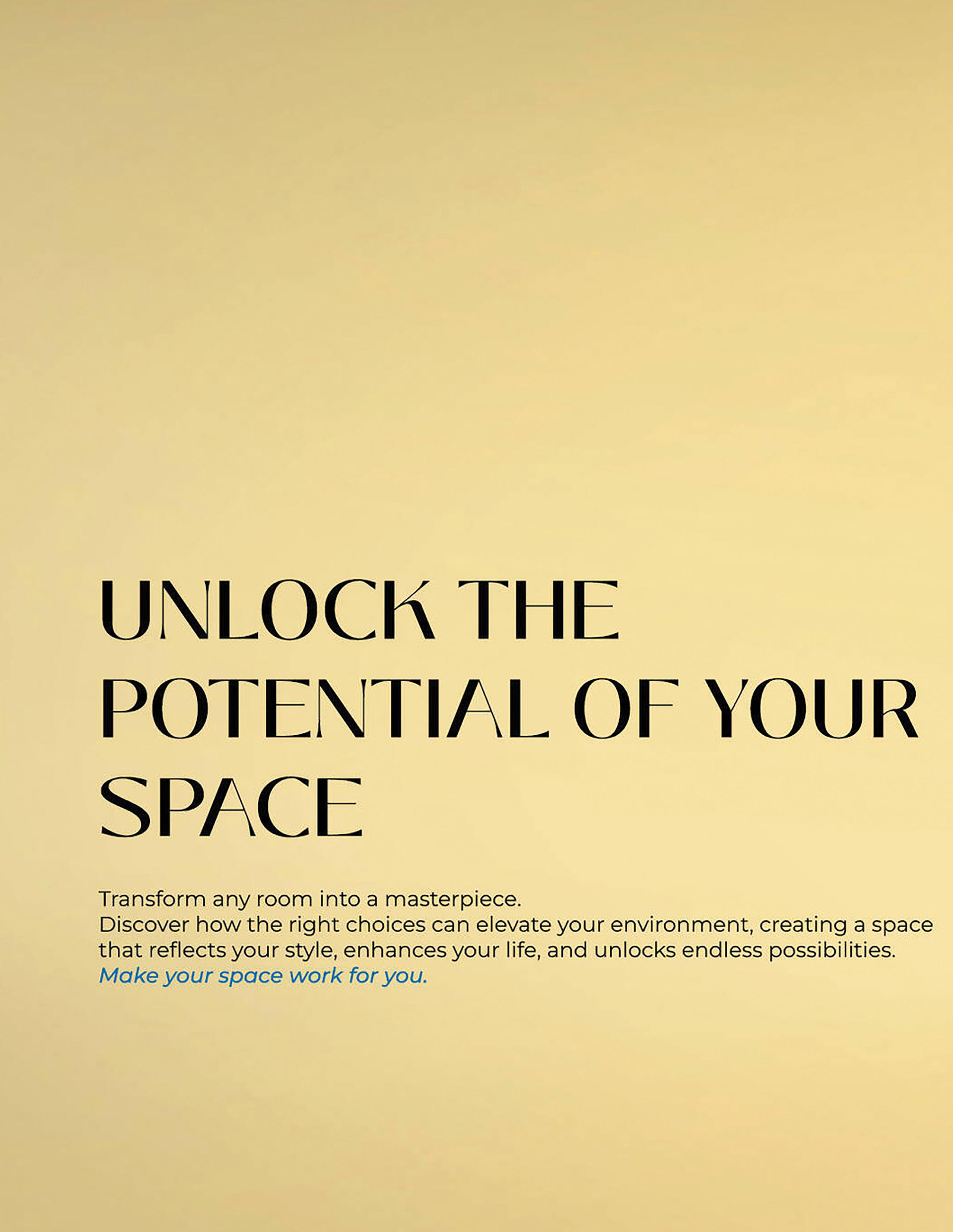


Picture a boardroom in Abu Dhabi. On one side—a polished consultant presenting market-entry strategies. On the other—a diplomat navigating cross-border negotiations. Now imagine these roles combined in a single individual. In the Gulf’s rapidly globalizing economies, a new breed of trailblazers is emerging, weaving together the threads of consultancy and diplomacy. In today’s hyper-connected political and business landscape, running parallel ventures in these realms can amplify influence—and impact— far beyond what either path offers alone.
At first glance, consultancy and diplomacy serve different masters—the former driven by metrics
and projects, the latter by statecraft and protocol. Yet both thrive on persuasion, adaptability, and trust-building. As Younes El-Ghazi, Founder of the Global Diplomatic Forum, recently noted, “Both fields revolve around the art of negotiation, relationship-building, and problem-solving in high-stakes, dynamic environments” linkedin. com+1gdforum.org+1. Whether guiding startups toward regional expansion or mediating interstate agreements, these professionals deploy overlapping skill sets.
Holding both hats isn’t about being a “Jack of all trades” but rather wielding diplomacy to unlock international doors for consultancy clients—and using industry insight to shape policy from within. The result? A 360-degree vantage point that helps practitioners design winwin strategies on every front.
A diplomat-turned-consultant offers more than standard market reports. They bring insider access to emerging policy frameworks, sovereign-backed infrastructure plans, and national economic strategies. In the Gulf, where government-directed ventures range from NEOM to post-oil diversification, understanding policy timelines can make or break a feasibility study.
Take Atef Elromhe, CEO of Abu Dhabi’s Arab Center for Consultancy & Economic Studies. His firm provides feasibility analyses deeply aligned with UAE Vision 2030 and Abu Dhabi Economic Vision 2030—ensuring projects are not just viable, but policy-relevant en.wikipedia.org.

On the flip side, corporate-savvy diplomats are valuable to host nations as “commercial bridge-builders.” They don’t just negotiate trade agreements—they understand domestic business ecosystems. Ausaf Sayeed, former Consul General of India in Jeddah, exemplified this by launching Saudi–India Business Network chapters in 2020, and facilitating forums across sectors from healthcare to media en.wikipedia. org+1linkedin.com+1 .
By steering diplomatic missions with a business-first lens, these professionals help their countries gain eminence in globalized economic landscapes.
Founded in 2011 in London, Grassroot Diplomat operates at the nexus of consultancy and diplomacy. It offers digital diplomacy, citizen engagement, and diplomatic training—not just to governments, but to embassies and public-sector entities en.wikipedia.org. By combining consulting rigour with public-diplomacy frameworks, it helps nations ‘brand’ themselves more effectively, tapping into entrepreneurship and cultural diplomacy.
The firm shows how consultancy-diplomacy hybrids can produce practical, measurable outcomes— be they in cultural exchange, investment flows, or foreign policy initiatives. These are not abstract services, but operational blueprints for modern nation-branding.
One must stay above board. Consulting clients expect confidentiality; diplomats operate under national mandates. Blurring those lines risks losing both audiences. Thoughtful practitioners ensure firewall-like separation—unless governments willingly contract the consultancy.
These professionals cultivate two ecosystems—private-sector decision-makers and government heads—securing access to investment forums, foreign embassies, industry councils, and cultural delegations.
Success demands expertise in domains like energy, infrastructure, fintech, or education. It’s not enough to know people; one must also know policy levers and competitive dynamics.
Consultancy thrives on quarterly deliverables; diplomacy asks for decade-spanning change. Balancing both types requires savvy project management and mixed-schedule agility.
Affiliation can create legitimacy. For instance, El Gurg’s slate of honors—Order of Zayed II, diplomatic appointments—enabled seamless interactions when he moved into Singapore’s economic council post–business conglomerate success ftp. mnangel.org+8en.wikipedia.org+8culturaldiplomacy.org+8en.wikipedia.org.
More practitioners are now entering consultancy after diplomatic service. Take Dubai Abulhoul, former UAE Cabinet diplomat now heading the Fiker Institute—a policy-oriented think tank focused on

global governance en.wikipedia. org. Her diplomatic career created access to government and media; consulting allows her to influence policy on her own terms.
Similarly, Mahesh Sachdev, India’s ex-diplomat, founded Eco-Diplomacy & Strategies, advising private-sector clients on trade and environmental policy in.linkedin. com. The shift demonstrates how diplomatic credibility can fast-track consultancy legitimacy—especially in sectors like sustainability and cross-border investment.
Consultancy-First, Then Diplomacy: Another Path
The reverse route is also gaining traction. Executives deeply familiar with sector-specific policy—like economic development or tech regulation—are natural candidates for diplomatic roles. A rare but notable model, this crossover demonstrates that the coupling of commercial and governing know-how is attractive to national agendas, which now prioritize public–private synergy.
Consultants with diplomatic acumen can tailor recommendations that reflect political will—saving
clients from missteps and accelerating approvals.
2. Broader Economic Impact
Diplomats armed with business insight can craft trade deals or investment pitches that resonate with corporates and SMEs alike.
3. Enhanced Sovereign Soft Power
When diplomats drive consultancies abroad, they naturally export a nation’s brand, governance ethos, and thought leadership.
This dual role offers not just financial upside, but high-impact roles— framing policy, shaping markets, and community-building.
Despite its potential, running consultancy and diplomacy together isn’t easy:
• Conflict of Interest Concerns Governments guard against dual-use knowledge. Conflicts must be managed transparently—especially in sectors like infrastructure, defense, or energy.
• Regulatory Limits
Some nations require diplomats to recuse themselves from private consulting or go on leave. Operating fully in both worlds requires legal diligence.
• Reputation Risk
One slip—misplaced client intel, a disclosed government memo—and credibility crumbles. The brand costs are high.
Younes El-Ghazi, CEO of Global Diplomatic Forum, observes that “diplomacy and entrepreneurship may appear distinct, but they both rely on negotiation, relationship-building, and problem-solving” linkedin.com+1gdforum.org`+1.

Ausaf Sayeed, former Indian diplomat, shares how launching the Saudi–India Business Network “reinforced how trust built through commerce could redefine entire bilateral relationships” en.wikipedia.org.
Talyn Rahman-Figueroa, Founder of Grassroot Diplomat, says their consultancy proves that even digital diplomacy demands “brand strategy, data-driven messaging, and stakeholder alignment” en.wikipedia.org.
Both
Step 1: Acquire a Strong Niche
Build sector-relevant credentials first—whether as a diplomat with trade portfolio or a consultant focused on governance-linked projects.
Step 2: Cultivate Cross‑Sector Presence
Join boards, mentor incubators, guest-lecture—be seen in both ecosystems.`
Step 3: Choose You. Ethically
Acknowledge tensions. Keep track of confidentiality compliance, disclosure protocols, partnership guardrails.
Step 4: Frame a Hybrid Brand
Ask: Are you a “Consulting Diplomat”? A “Gov-Tech Advisor”? Be crystal.
Step 5: Leverage Structured Tran‑ sitions
Use sabbaticals, secondments, or joint appointments (e.g., at universities or think tanks) to maintain integrity while moving between roles.
As nations like Saudi Arabia, UAE, Qatar, and Bahrain pursue economic diversification, cross-border diplomacy becomes a wealth-building pillar—and vice versa. Hybrid practitioners can act as:
Policy Consultants with Diplomatic Channels – helping SMEs enter new GCC or Asian markets
Policy Consultants with Diplomatic Channels – linking university labs with trade ministries
Cultural Promoters with Market Intelligence – exporting creative sectors and tourism
In the next decade, such voices may come to define the Gulf’s “soft hard power.”
In a region racing toward sustainable diversification, consultancy and diplomacy are no longer parallel lanes—they’re twin highways. As governments solicit ideas beyond internal ministries, and corporations demand regulatory insight, the practitioner who can walk both worlds will be the one shaping industries, framing policies, and redefining national value.
For those contemplating the path, the message is clear: the bridge be‑ tween governance and business isn’t a risk—it’s a differentiation. Equip yourself with credibility—and you won’t just consult or negotiate. You’ll create. And in today’s Gulf, that makes all the difference.
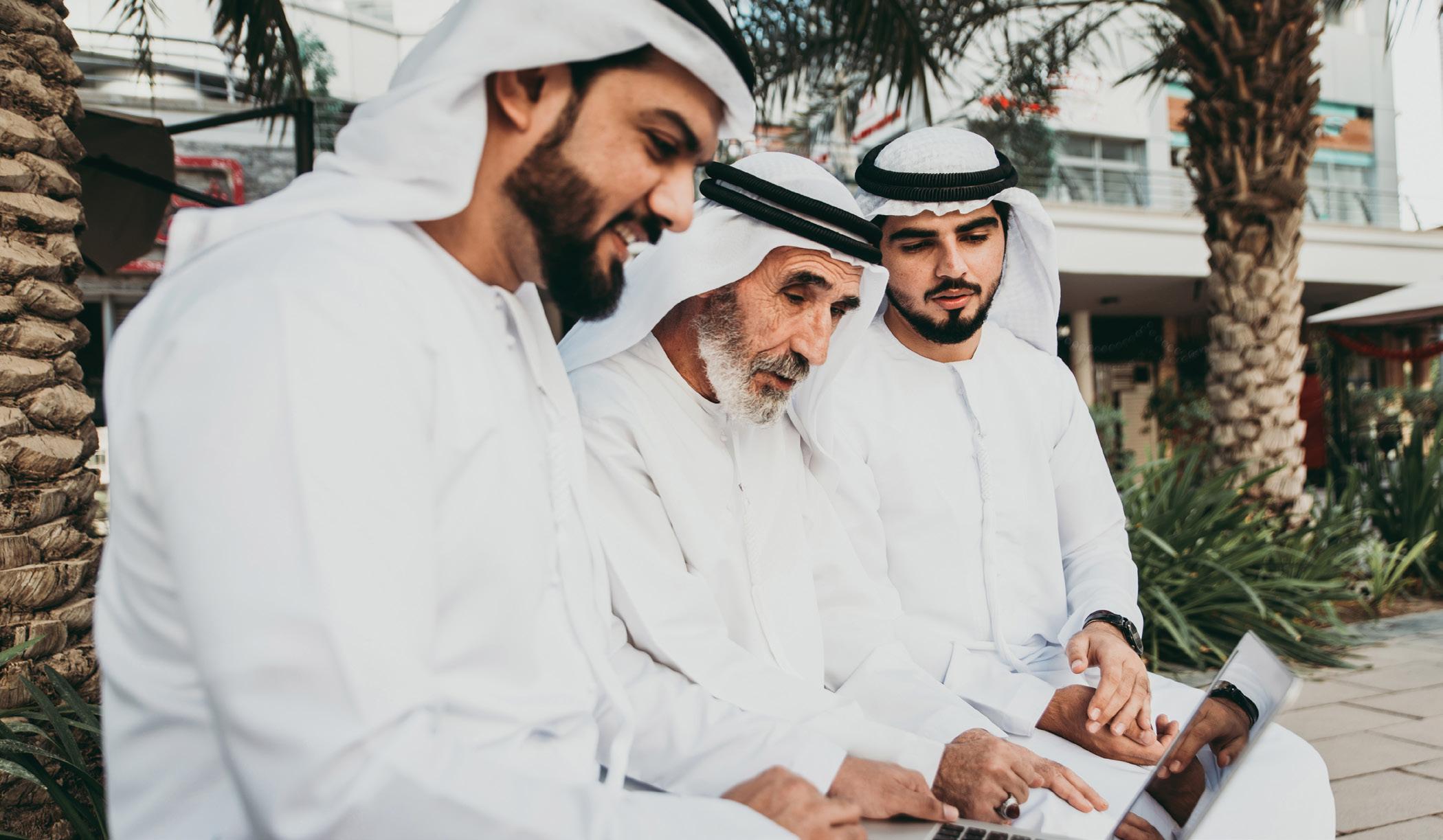
Family-run businesses have long been the backbone of the Gulf economy. Responsible for nearly 60% of the region’s GDP and employing over 80% of the private-sector workforce, these enterprises are deeply woven into the social and financial fabric of the GCC. But the story of family business in the Gulf is no longer just about legacy—it’s about evolution.
Across the region, a new generation of leaders is stepping into the boardroom with a different lens. Rather than holding on to tradition for tradition’s sake, they’re using it as a platform to modernize. They’re introducing governance reforms, embracing sustainability, hiring external talent, and boldly expanding into new sectors and geographies— all while keeping the core identity of the family intact.
In the UAE, a recent case involving Majid Al Futtaim Group captured
national attention. Following the founder’s passing, the Dubai Courts intervened in the company’s internal governance structure, mandating a revised board composition to reflect balanced oversight. The move was not a rebuke of family ownership but a reinforcement of the importance of transparency and succession planning in today’s complex business environment. It also marked a broader trend: state institutions are increasingly encouraging family businesses to adopt institutional frameworks, not only to secure continuity but to sustain their national economic contribution.
These shifts are being driven in large part by the next generation. Young Gulf leaders—many of them educated abroad and shaped by global business norms—are bringing fresh energy and perspectives to legacy firms. A prime example is Dr. Amina Al Rostamani, a prominent fig-
ure on the board of AW Rostamani Group, a family business with roots dating back to the 1950s. Her leadership reflects both continuity and reinvention, signaling a willingness to blend long-standing values with inclusive, forward-thinking governance.
This evolution isn’t just internal. It’s also strategic. Family firms are no longer content to maintain their existing market positions—they’re expanding into high-growth industries and global markets. Al Nowais Investments, a respected Emirati family firm, recently invested over $1 billion into Egypt’s renewable energy sector. The message is clear: legacy capital is being mobilized for future-facing impact.
Bahrain’s Fakhro Group—one of the region’s oldest family enterprises, founded in 1888—is another name that’s rewriting the rules. Once rooted in shipping and trading, the
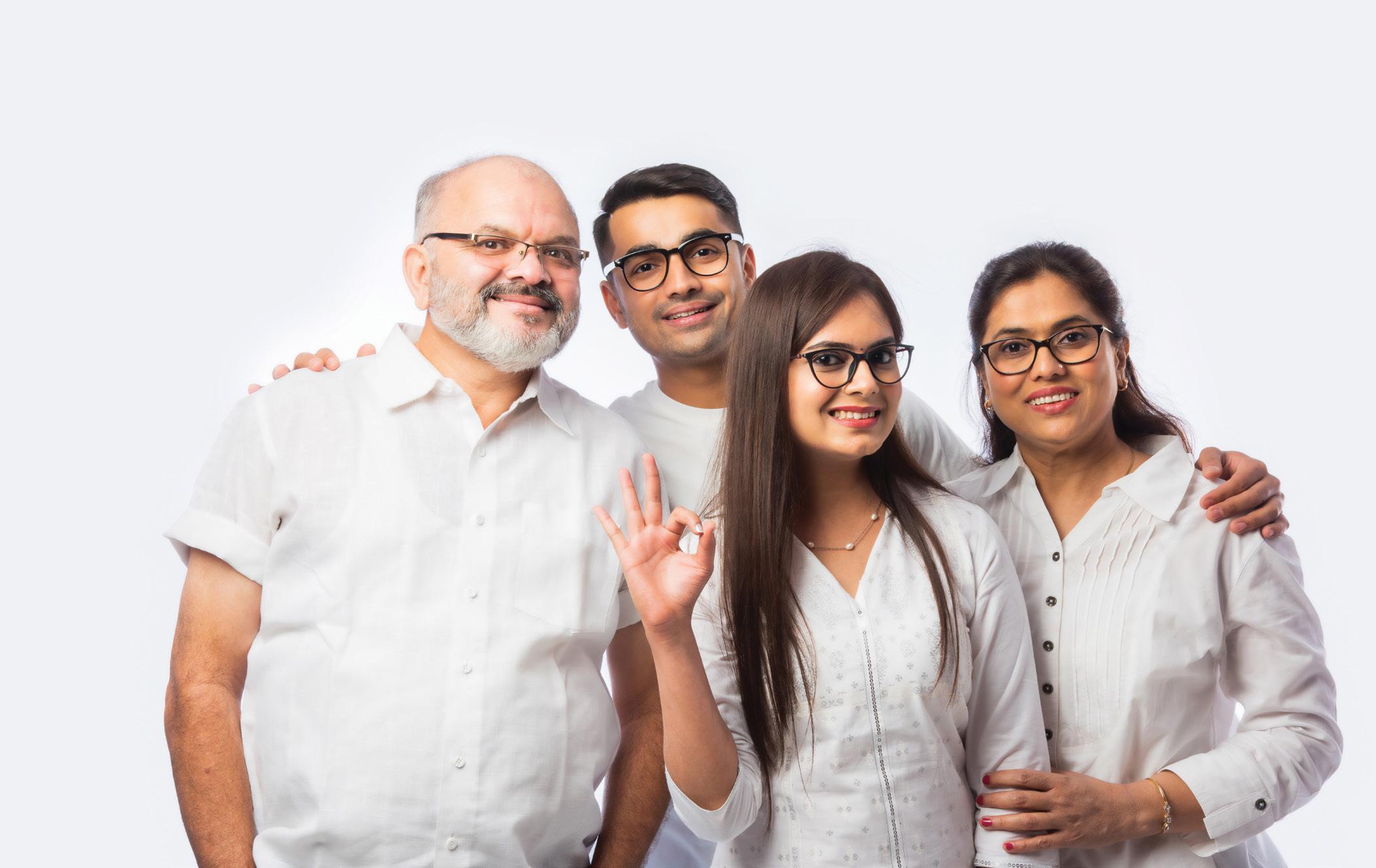
group now spans automotive, IT, insurance, and logistics. Their success is emblematic of a broader pattern across the Gulf: family firms are learning to pivot while preserving their name, reputation, and values.
This kind of change doesn’t happen by chance. It requires deliberate decisions around governance, strategy, and structure. According to KPMG’s 2025 Global Family Business Report, some of the most effective practices being adopted by Gulf firms include the appointment of independent board members, external CEOs and CFOs, and the establishment of formal succession plans. These measures help reduce family friction, increase investor confidence, and ensure operational resilience—particularly in times of crisis or leadership transition.
Yet, the path to modernizing legacy isn’t always smooth. Many family businesses continue to face challenges around generational handover, reluctance to let go of control, and limited digital transformation. As highlighted in a recent analysis by the Atlantic Council, the lack of formal structures in some family-run entities could pose risks not
only to their continuity but also to broader economic diversification goals in the region.
Despite these hurdles, there’s reason for optimism. Gulf governments have recognized the strategic importance of family businesses and are offering active support. Initiatives like the Family Business Council Gulf and national family business platforms in Abu Dhabi and Saudi Arabia are helping firms implement best practices and celebrate cross-generational success stories. These platforms also play a key role in addressing a new and vital concern: how legacy firms can contribute to ESG goals, particularly climate resilience.
We’re now seeing family firms take up that challenge. Abdul Latif Jameel, a family business headquartered in Saudi Arabia, has established global partnerships through MIT-affiliated labs to combat water scarcity. Al Nowais Investments has stepped into green energy not as a side project but as a central growth pillar. These efforts are transforming legacy firms into agents of sustainability, not just profitability.
What sets these legacy leaders apart is not their capital—it’s their long-term vision. Unlike quarterly-pressured public companies, family businesses in the Gulf can think in decades. That gives them the patience to invest in purpose, people, and innovation. It also makes them uniquely positioned to help their countries transition from oil-driven economies to diversified, knowledge-based ones.
As new leadership takes hold and old guard wisdom finds new expression, the role of Gulf family firms is expanding. They are no longer just stewards of tradition—they are builders of the future. The fusion of generational legacy with global acumen is reshaping what success looks like in the Arab private sector.
In the end, the most powerful legacy may not be the family name etched into a tower or a logo—but the ability to adapt, to lead with purpose, and to pass on a company better prepared for tomorrow than it was for yesterday.

When you sit down with Ziad Makkawi, you quickly get the sense that you’re not just speaking to an investor—you’re speaking to someone who has spent decades building institutions. From the structured halls of Wall Street to the entrepreneurial energy of Dubai, Makkawi’s career has spanned global financial centers, sovereign wealth corridors, and disruptive private ventures.
Today, as Founder & CEO of Equiam, a Dubai- and San Francisco-based firm focused on rules based growth equity strategies, Makkawi is at the frontier of what he calls the next chapter of Gulf investing: systematic, institutional-grade asset management tailored to the region’s needs.
We sat down with Ziad to trace his unique path—from multinational
banks to founding fintech investment platforms—and understand how legacy, trust, and structure intersect with entrepreneurial risk in the modern Gulf.
“You can’t import strategy—you have to localize it.”
EA: Ziad, you’ve worked across continents—from the U.S. to Europe to the Middle East. What prompted your shift from traditional finance into entrepreneurship?
ZM: I began on Wall Street at J.P. Morgan, then moved through investment banking in Europe. But around 2000, I saw an opportunity in the Middle East. The region was capital-rich but infrastructure-poor—especially in structured finance. That’s what brought me to Dubai, and eventually to launching firms like Lebanon Invest and Shuaa Capital. But over time, I noticed something else: the
region had capital, but lacked disciplined, rules-based investment strategies. That’s what led to Equiam.
EA: What was the market missing that Equiam addresses?
ZM: Most fund structures in the region were relationship-driven. Deals happened over dinners, not due diligence. What I wanted was to introduce data discipline—a rules-based approach grounded in performance metrics, not proximity to capital. We launched Equiam in the U.S., but our key growth focus is MENA. We’re combining quantitative rigor with regional sensibility.
“People in the Gulf want performance, but now they also want transparency.”
EA: Equiam promotes itself as a “rules-based growth equity firm.” What does that really mean?
ZM: Think of it as the middle path between venture capital and private equity. We focus on companies that have scaled beyond startup mode but are not yet ready for institutional acquisition. What sets us apart is that we use systematic selection frameworks—a methodology that removes a lot of the emotional bias from investment decisions. We look at real traction: operational KPIs, cultural resilience, governance, and adaptability to scaling. And then we track performance with real-time data, not intuition.
EA: Has it been easy introducing this discipline into Gulf markets?
ZM: At first, no. We had to educate our investors. We had to show them that structure doesn’t reduce creativity—it enhances it. But what surprised me is how quickly the appetite matured. Today, many Gulf family offices and sovereign-affiliated vehicles demand global-standard reporting. That’s a big leap from where we were even five years ago.
“I’ve always been more interested in ecosystems than individual wins.”
EA: Your background includes stints as CEO of Dubai Bank, Managing Director at Shuaa Capital, and co-founder of Algebra Capital. What connects these roles?
ZM: All of them were about ecosystem building. At Dubai Bank, we modernized governance to align with Shariah compliance while expanding into retail. At Algebra Capital, we pioneered multi-asset investment for the region before being acquired by Franklin Templeton. At Shuaa, we tried to institutionalize investment banking for a region that still preferred informal deal-making.
What connects them is that each role required building trust through structure. That’s what I’ve tried to replicate at Equiam—structure first, performance second. Because the latter is impossible without the former.
“Gulf investors today want structure, governance, and access.”
EA: As someone deeply embedded in both global and regional financial circles, how has your perspective on the Gulf ecosystem evolved?
ZM: Tremendously. When I first arrived, it was a frontier market with ambition. Today, it’s a hub of institutional sophistication. Between ADGM in Abu Dhabi and DIFC in Dubai, we now have regulatory frameworks that rival London or Singapore. We have access to global capital flows, startups building for scale, and family offices diversifying beyond real estate and oil-linked assets. The professionalism is here—it just needed time and guidance.
EA: You’ve held a wide range of board roles—from Barneys New York to Istithmar and Gulf Africa Bank. How does that play into your philosophy?
ZM: I believe in cross-pollination. Whether it’s art, finance, culture, or policy—each board role taught me something about governance, human capital, or risk. That informs how I mentor founders today. Governance isn’t a box you check—it’s the thing that allows you to scale without collapse.
“Don’t build a company for the Gulf. Build a Gulf company for the world.”
EA: What do Gulf entrepreneurs often miss when scaling regionally or globally?
ZM: I think there’s a tendency to underestimate governance and overes-

timate market protection. You may have local market access—but global credibility requires more. Investors want clean books, third-party audits, well-composed boards, and risk committees. That’s what turns a founder-led venture into an investable asset.
I always tell founders: run your business like you’re trying to get acquired by BlackRock—even if you never are. That mindset changes everything.
“We’re not reinventing the wheel— we’re building a regional version of it.”
EA: What’s next for you and Equiam?
ZM: We’re launching a second fund, fo-
cused on late-stage growth businesses in the GCC. We’re also expanding our Dubai and Abu Dhabi footprint, including new partnerships with family offices. Our goal is to become the go-to platform for rules-based investing in the region—a hybrid between Silicon Valley science and Gulf capital sophistication.
EA: What advice do you offer to founders looking to lead across borders?
ZM: Build early. Hire slow. Institutionalize from day one. And don’t forget to surround yourself with people who will challenge you—not just validate you.
Leadership has changed. The days of top-down management, rigid hierarchies, and purely transactional relationships are quietly being replaced by something more human—and far more effective. At the heart of this global shift is the work of thinkers and coaches who don’t just talk about leadership but help organizations live it differently. One of the most respected voices in that space is Dr. Corrie Block.
Across boardrooms in the Gulf and beyond, Dr. Block has become known for helping executives and organizations unlock sustainable performance—not through outdated motivational gimmicks, but by reshaping how leaders think, work, and connect with their teams. His work isn’t theoretical. It’s practical, results-driven, and grounded in a deep understanding of human behavior in high-stakes environments.
At the core of Dr. Block’s approach is a simple but powerful principle: people perform better when their work has meaning. While this idea has gained traction in recent years, Dr. Block was among the first to embed it into leadership development frameworks with measurable results.
Through his consulting, executive coaching, and corporate workshops, he works with leaders to close the gap between organizational goals and personal purpose. His philosophy is straightforward—companies that align individual meaning with business objectives not only create happier employees but deliver stronger performance across key metrics like productivity, retention, and profitability.
It’s an approach backed by both psychology and business outcomes. Organizations that have adopted his frameworks report significant improvements in employee engagement, team cohesion, and bottom-line results.
What sets Dr. Block apart in the crowded world of leadership advisors is his blend of academic rigor and real-world business experience. His focus isn’t on fluffy motivational talks. Instead, he equips leaders with actionable tools that improve focus, resilience, decision-making, and influence— the pillars that drive executive performance.
He’s known for helping leaders move beyond transactional management towards what he calls “high-performance, human-centered leadership.” In practice, that means:
• Building self-awareness and emotional intelligence at the executive level
• Fostering psychological safety within teams
• Using neuroscience and behavioral insights to guide decision-making
• Prioritizing purpose as a core element of organizational success
The results speak for themselves. Companies that invest in this type of leadership development often report im-
FEATURE INTERVIEW
Leadership Coaches & Thought Leaders
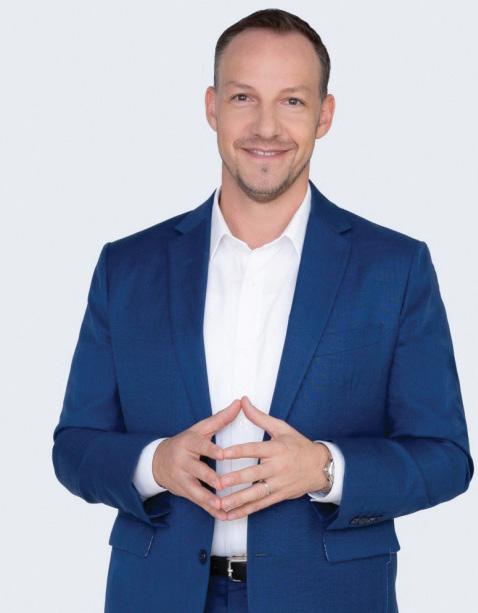

proved team performance, faster strategic alignment, and a more resilient organizational culture.
Tool
In recent years, Dr. Block has become an outspoken advocate for empathy—not as a soft skill but as a strategic leadership asset. His work emphasizes that empathy isn’t about being agreeable or avoiding tough conversations. It’s about understanding people deeply enough to lead them effectively.
Through his books and talks, he demonstrates how empathetic lead-
ership directly impacts innovation, employee engagement, and organizational agility. The message resonates with both startups and established corporates navigating an increasingly complex business environment.
His research-backed approach shows that leaders who practice empathy create cultures where people contribute more fully, adapt more quickly, and stay longer. It’s not just good for morale—it’s good for business.
As organizations across the Middle East and globally grapple with digital disruption, shifting employee expectations, and the demands of rapid growth, the need for a different kind of leader has never been greater. Dr. Corrie Block’s work answers that need.
His programs and coaching aren’t about short-term fixes. They’re about building leadership capabilities that endure—skills that help executives navigate uncertainty, inspire their teams, and deliver results without sacrificing humanity in the process.
In a business world where performance and people often feel like competing priorities, Dr. Block’s work reminds us that the most effective leaders understand they are, in fact, inseparable.
The best leaders today aren’t the ones with all the answers. They’re the ones who ask better questions, faster, and with more self-awareness than ever before.
IOne thing I see with a lot of people that I coach is: They actually think they’re business owners and they’re not. What they are is very advanced self-employed people.
FEATURE INTERVIEW
Leadership Coaches & Thought Leaders

n today’s fast-moving world, leadership can feel like treading water—demanding, relentless, and often isolating. That’s where Mike steps in. As a seasoned coach, his philosophy goes beyond standard leadership training. With CoachWithMike.com, he delivers deeply personal guidance that empowers professionals to thrive under pressure while embracing their authentic selves.
Unlike trend-chasing consultants, Mike builds relationships that go far deeper than boardroom advice. Through one-on-one coaching and group sessions, he helps clients blend clarity, purpose, and performance so they can lead with confidence—and integrity—in both business and life.
Mike’s coaching stands out because it treats leadership as a personal journey, not just a performance benchmark. He uses a combination of breakthrough questioning, practical tools, and real-world experience to uncover what drives each client—not just professionally, but as a person.
His sessions often begin with one simple but critical question: “What’s standing between you and your version of success?” From there, he works to dismantle mental barriers and create a plan that honors personal values just as much as professional goals.
That approach resonates with leaders who’ve felt stuck in “CEO mode” without purpose. Mike helps them reclaim clarity, reconnect with vision, and harness both ambition and authenticity for real and lasting results.
Where many coaches offer vague frameworks, Mike delivers proven systems:
1. Clarity Sprints — A guided method for uncovering blind spots and defining success metrics that truly matter.
2. Edge Sessions — Focused, tactical deep dives to tackle challenges in hiring, culture, productivity, and team dynamics.
3. RPM Breakdowns — Rapid Pulse Meetings: a practice he encourages for busy teams, cutting through status updates to focus on impact.
These tools reflect Mike’s practical mindset. Clients report less startup overwhelm, more aligned goals, and leadership that feels more grounded and capable—even under pressure.
Mike’s coaching attracts those who live in the fray: startups scaling fast, teams navigating disruption, and driven individuals juggling work, family, and strategic growth. His website highlights success stories from tech founders, medical executives, and creative entrepreneurs—people committed to growth and willing to face their toughest barriers head-on.
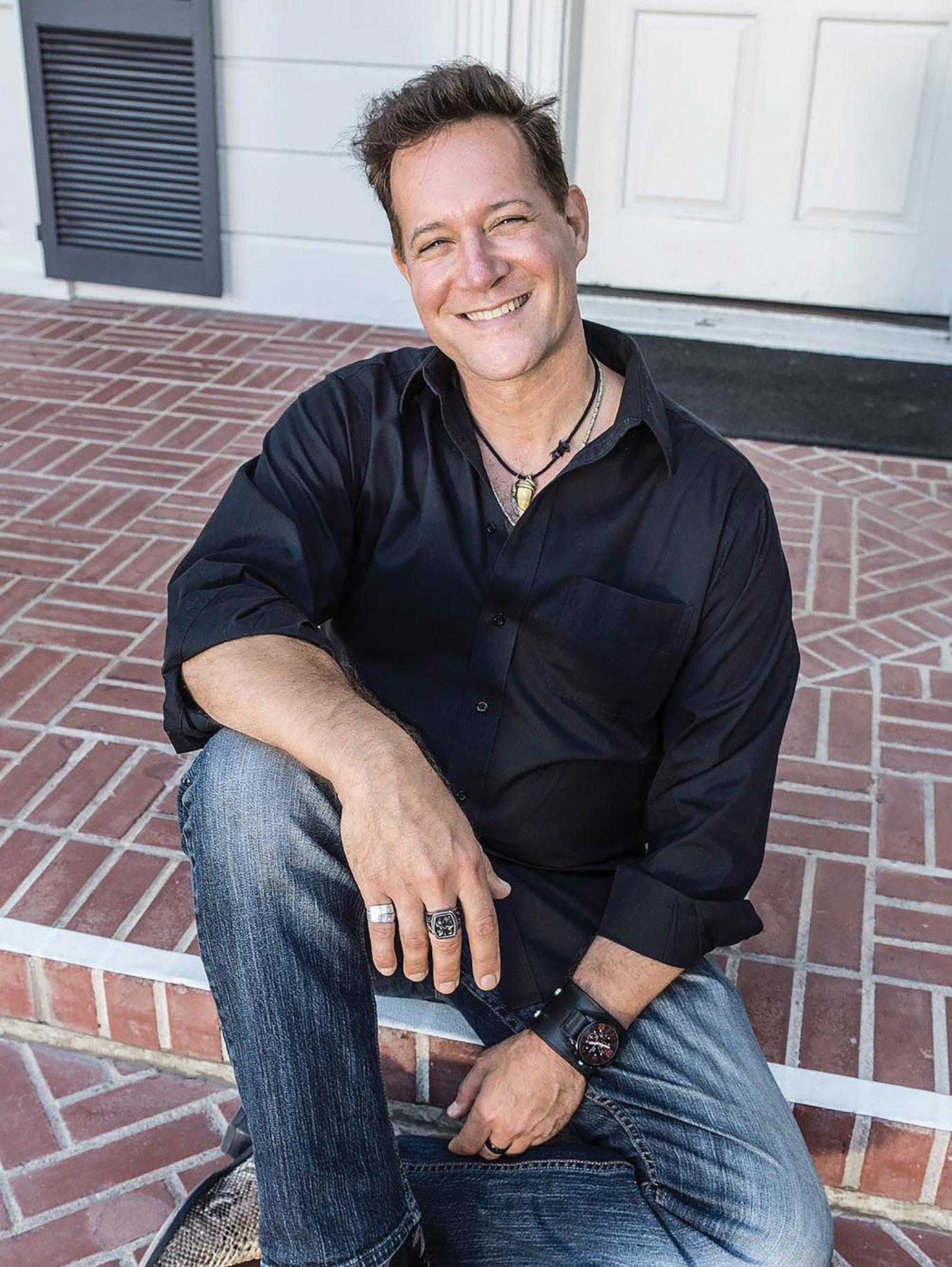
What makes his work so effective is that it reflects lived business realities. Mike isn’t just theory-driven—he builds on his own leadership experience and observations across industries, ensuring that his guidance actually works in real environments.
Clients describe Mike as direct but deeply empathetic. He’s known for asking the questions they wish someone would ask—and providing the support many wish they had. Whether it’s walking through heated negotiation strategy or personal resilience ahead of a high-stakes pitch, Mike shows his clients they’re
not alone in facing their toughest challenges.
That psychological safety—knowing someone has your back and your best interest—leads to more than temporary wins. It builds the confidence necessary for sustainable success.
In an era dominated by noise—AI promises, remote shifts, and hybrid burnout—leadership needs to be anchored in humanity. Mike’s work pushes past superficial solutions. He helps leaders become clearer, stronger, and more aligned with their purpose.
For businesses, that translates into teams that trust each other, projects that move at pace without eroding culture, and leaders who take smart risks without sacrificing integrity.
Mike’s coaching isn’t about soul-searching solitude or flashy management hacks. It’s about honesty, courage, and practical breakthroughs. It’s about stepping into leadership that feels aligned with both your goals and your values. And when that alignment is achieved, everything changes—not just results, but how you get them.
So if you’re ready to lead with clarity in a world full of complexity, CoachWithMike.com just might be the partner who helps you chart the path.
There’s a reason why I’m a business and life coach. When you’re a business owner, any mental block you have, any health thing that’s out of balance with your life will affect the business.
Danielle Smith is a seasoned executive, life, and career coach at the forefront of Dubai’s evolving business landscape. In a city where success is no longer defined by revenue alone, but by purpose, resilience, and authentic leadership, her practical, human-driven approach is guiding leaders through complexity and burnout— helping them rediscover clarity, confidence, and meaning in their work.
Danielle knows firsthand what it means to pivot. Her journey from running a successful recruitment agency in Dubai to becoming a trusted coach is a story of resilience and reinvention. Through Danielle Smith Coaching, she now helps high-achieving individuals—executives, entrepreneurs, and career changers—bridge the gap between where they are and where they want to be. Her clients describe her approach as striking a rare balance: deeply personal yet profoundly practical. She starts by listening—really listening. Then she delivers actionable insights that her clients can use immediately. Whether it’s helping someone navigate imposter syndrome, build emotional resilience, or make a bold career shift, her coaching isn’t just theoretical—it works.
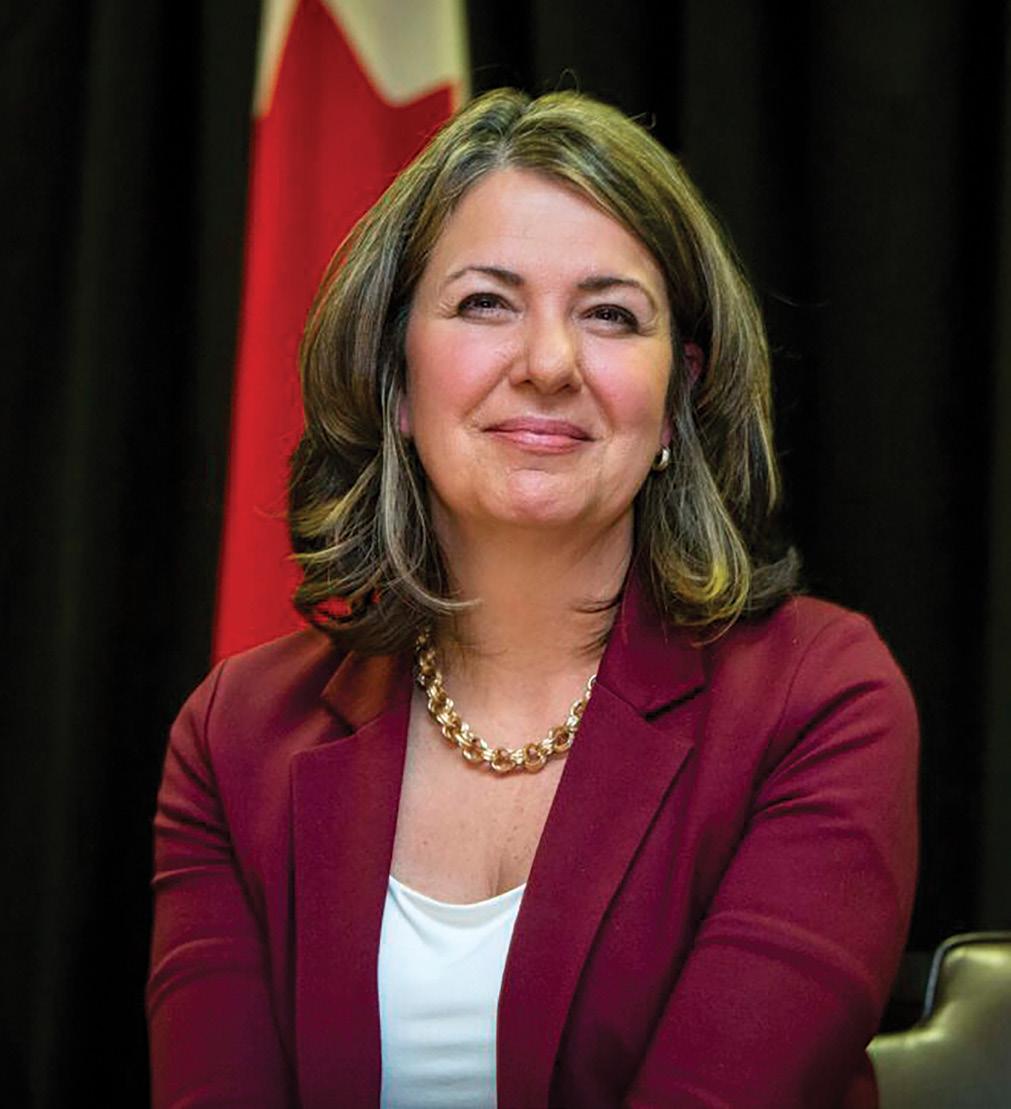
FEATURE INTERVIEW
Leadership Coaches & Thought Leaders
What sets Danielle apart is her commitment to empathetic, yet outcome-oriented coaching. She blends positive psychology techniques, emotional intelligence, and proven frameworks to guide clients through both professional and personal challenges.
One of her hallmark methods is what she calls the “Clarity Sprint”: a structured session designed to uncover hidden barriers, refine priorities, and define success in personal terms. It’s focused, brief, and effective—exactly what busy professionals need. Clients consistently praise the clarity and momentum they gain after a single session. TrustIndex reviews rate her 4.9 out of 5 for “transformative, actionable guidance”.
Danielle’s impact is measurable. Executives have reported improved team dynamics, stronger decision-making, and higher job satisfaction after working with her. Professionals undergoing career change cite her support as instrumental in landing roles aligned with their values and longterm goals.
One recent client, after multiple growth-focused coaching sessions, described her approach like this:

“Danielle is super sharp, direct, pragmatic… after every session I came out feeling positive, lighter, and reflective.”
That kind of feedback isn’t just flattering—it’s evidence of coaching that provides both mental clarity and tangible career impact.
Central to Danielle’s philosophy is the belief that leadership and fulfillment arise not from external validation but internal alignment. She encourages clients to ask hard questions like: What does work feel like when you’re truly engaged?
Which parts of your role drain you— and why?
What would fulfillment look like if success was measured differently?
Answers to these questions often uncover surprising insights: hidden misalignments that no amount of salary or title could fix. Danielle’s job is to shine a light on these disconnects and collaborate on solutions that marry purpose with performance.
In a world where burnout is often glorified and relentless hustle is the default, Danielle represents a fresh, sustainable alternative. She’s helping leaders build practices, routines, and mindsets aligned with their values and energy levels.
Her programs encourage self-awareness and emotional balance—an antidote to workaholic culture. By guiding clients to define success on their own terms, Danielle empowers them to lead with intention without sacrificing personal well-being.
From multinational startups to traditional corporate teams, the UAE is undergoing rapid change. Leaders are being asked to deliver aggressive results while navigating hybrid teams, global competition, and shifting societal expectations. That’s a heavy lift—especially without the right mindset and internal compass.
Danielle Smith’s coaching offers clarity in chaos. Her clients emerge more focused, grounded, and capable—not because she’s giving them more tasks, but because she’s helping them understand what truly matters. And in doing so, she’s delivering leadership that feels human again.
If you’re a leader who feels caught between high expectations and inner misalignment, Danielle Smith might be the coach you didn’t know you needed. Her approach isn’t about dramatic transformations or motivational fluff—it’s about quiet breakthroughs and real progress.
When you emerge from a session with her, you leave with clear intentions, refreshed perspective, and the tools to act decisively. And that, more than anything, is what leadership truly is: clarity in motion.
True leadership begins when you stop performing and start aligning—with purpose, with people, and with yourself.
FEATURE INTERVIEW
Leadership Coaches & Thought Leaders
In a region buzzing with ambition and rapid development, one voice stands out for its clarity, connection, and conviction: Zeta Yarwood. Based in Dubai, Zeta has earned her place as the go-to executive, career, and life coach for mid-career professionals and senior leaders. With a powerful blend of psychology, neuroscience-based tools, and lived experience, she helps clients achieve clarity, confidence, and lasting success.
Zeta’s own journey—shifting from recruitment to coaching—drives her deep empathy for those at career crossroads. She’s guided professionals through transitions ranging from job dissatisfaction to corporate leadership roles, leveraging powerful questioning techniques and neuroscience-backed exercises to help clients reframe what’s possible.
Her signature Career Transformation Accelerator is built around six pillars: clarity, confidence, personal branding, communication, emotional intelligence, and resilience. Graduates of the program consistently report life-altering breakthroughs: achieving promotions, switching industries, or gaining a refreshed sense of purpose.
Zeta combines her Psychology BSc and certifications in NLP and neuro-leadership to craft coaching that’s
Zboth rigorous and resonant. As a LinkedIn Top Voice with 270K+ followers, she regularly shares practical tools— from stress management to boardroom presence—that demonstrate professional credibility.
Her coaching isn’t generic. It’s precise, personalized, and holistic. She helps clients break down personal barriers— like imposter syndrome—and build up emotional agility. As she puts it: “We only get one chance at life. Let’s make it count.”
Leadership isn’t about authority — it’s about authenticity. Purpose-driven leaders build cultures, not empires.


Zeta’s impact stretches beyond solo coaching. She leads workshops and group sessions for organizations like Wood Group and WSP—receiving praise for her interactive, inclusive style that blends storytelling, science, and real-time application.
Participants describe her sessions as high-energy and deeply reflective. One HR director shared that Zeta “connected with everyone by sharing her story… engaging and energetic”—citing it as instrumental in fostering confidence in female professionals .
Dubai’s future lies in leaders who lead with meaning, not just metrics
10+ years coaching professionals internationally
170K+ engaged followers on LinkedIn; voted Top Voice and most impactful influencer
Science-based methods: Psychology degree, NLP certification, Dr. Marshall Goldsmith coach
Corporate impact: Workshops praised by global organizations like Wood Group and WSP
Her client testimonials speak volumes: “Zeta is quite simply outstanding… she guides you to solutions and unlocks new understanding,” said a Middle East SVP. Another executive credited her with restoring career direction at a critical inflection point.
Dubai’s high-octane environment demands leaders who not only perform but thrive—and Zeta builds both inner and outer leadership capacities. She equips professionals to manage rapid transitions, career pivots, and high-pressure roles with grace.
Whether you’re plotting a move into senior leadership, seeking renewed fulfillment, or aiming to perform at your edge without burnout, Zeta offers more than coaching—she delivers transformation with care.
Her approach is clear, credible, and human:
Start with what matters: Align personal values with professional ambitions
Build resilience first: Navigate transitions without losing yourself
Use tools that last: From NLP to self-awareness exercises, clients leave equipped for long-term success
AAdam Ashcroft, the force behind The Advantage Coach, understands that in Dubai’s fast-paced, high-stakes business world, clarity isn’t a luxury—it’s a necessity. Over the last two decades, he has carved a niche helping executives, entrepreneurs, and senior leadership teams find focus, craft purposeful strategies, and deliver sustainable impact.
Adam’s coaching philosophy centers around simplicity and structure. He’s known for his signature 3 P’s to Suc ceed framework—Purpose, Passion, Progress—that encourages leaders to align what drives them with what they achieve. This isn’t just motivational rhetoric; it’s a systematic way to align mindsets and actions.
He complements this with the 7 Steps to Success, a practical roadmap that guides clients from defining vision to executing with discipline. This combination of heart and process resonates strongly in a region where ambition is abundant—but clarity often isn’t.
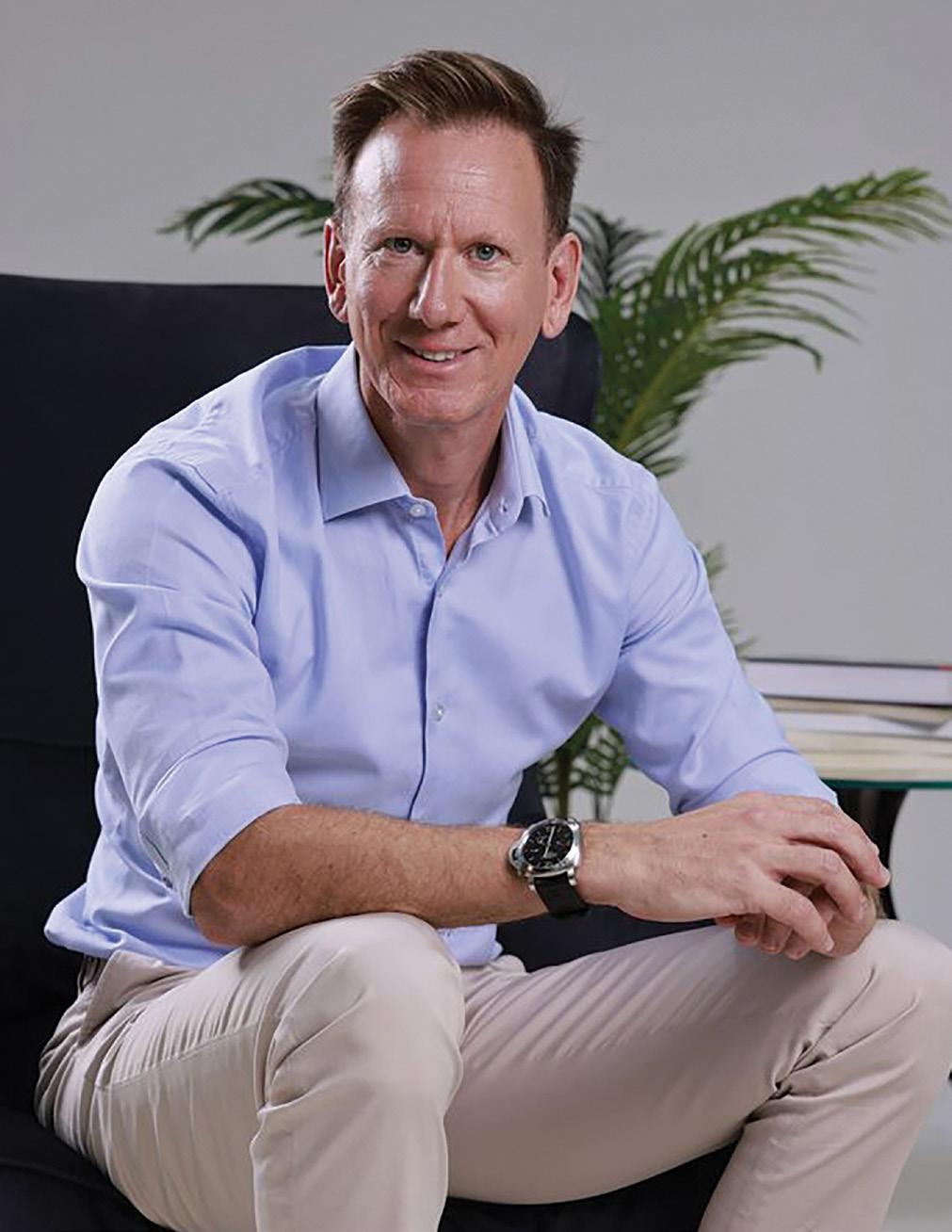
FEATURE INTERVIEW
Leadership Coaches & Thought Leaders
By integrating over 100 Advantage Success Play books, Adam provides leaders with tailored tools for real near-term needs—whether that’s refining a strategic plan, restructuring a high-potential team, or navigating a career pivot.
Coaching with Credibility: From Corporate Boardrooms to Founder Offices
What sets Adam apart isn’t just his frameworks—it’s his background. Before coaching full-time, he spent 20+ years building, scaling, and selling businesses across Europe, Africa, and the Middle East. He’s worked alongside global strategy firms like Bain, BCG, McKinsey, and Oliver Wyman, giving him a rare vantage point on growth challenges.
Founded in Dubai, The Advantage Coach reflects that global-local duality. Adam coaches everyone from startup founders to senior leadership teams in FTSE-listed firms. This depth of experience—from solo entrepreneurship to corporate systems—gives his guidance exceptional resonance across diverse leadership contexts in the UAE.
From One-on-One to High-Pressure Team Coaching
Adam’s coaching spans both individual and collective transformation. In executive coaching, he works closely with leaders navigating pivotal moments— promotion, board appointments, or organizational change. His process includes:
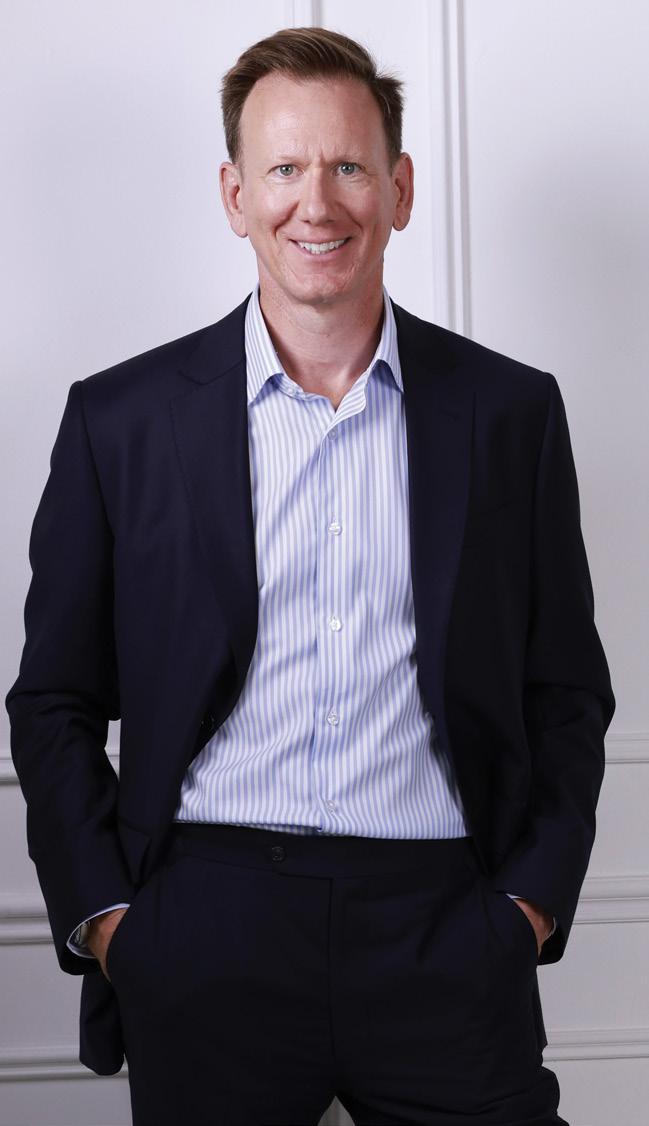
Clarifying personal and organizational priorities
Diagnosing blind spots using CliftonStrengths assessments
Co-developing focused action plans and accountability rituals
On the team front, he’s delivered leadership retreats and team coaching sessions across the region—such as senior team alignment off-sites and strategic steering-group retreats. What clients report isn’t just alignment—it’s a new level of cohesion that accelerates decision-making and leadership consistency.
Adam describes himself as a blend of life coach, business coach, and executive coach all in one. That holistic approach helps leaders avoid compartmentalizing their lives. He believes high performance comes from alignment—across schedules, teams, values, and ambitions.
That philosophy is also central to his work helping high-potential leaders manage transitions—whether starting new branches, pivoting busi-
ness models, or balancing leadership with wellbeing. Through what he calls “Clarity Sprints”, Adam helps clients reduce overwhelm and focus on what matters most.
The proof of Adam’s impact lives in the experiences of his clients across startups, family businesses, and multinational giants:
A regional tech founder used Adam’s playbooks to structure investor conversations and scale their team from 5 to 50 in under a year.
A senior Middle East executive reported doubling their productivity and reclaiming time for personal priorities after Adam helped them implement clear performance rhythms.
A cross-sector leadership team improved ROI on strategic initiatives by focusing on strengthened alignment, ownership, and execution.
These aren’t isolated successes—they reflect a systematic, outcomes-driven coaching model that Adam has refined over years in the field .
Adam’s expertise has been recognized widely: described by peers as “Dubai’s leading business coach,” he’s featured in events like the HR Leaders Conference and acknowledged by Digital Journal. He’s also built a popular blog and e-book titled The 7 Steps to Live Your Best Life, extending his frameworks to a wider audience.
Under his leadership, The Advantage Coach continues to expand in the UAE, Gulf, Europe, and beyond—offering a unique blend of global best practice and local insight .
• Structured Simplicity: His frameworks are easy to understand and implement.
• Global Credentials, Regional Application: He merges international expertise with cultural nuance.
• Versatility: Bachelor’s in leadership, plus certifications (Wharton, CliftonStrengths, ICF).
• Tangible ROI: Clients report measurable shifts in clarity, performance, and wellbeing.
• Resource‑Rich: Access to over 100 playbooks tailored to specific leadership challenges.
In a city defined by ambition, Adam Ashcroft offers much more than pep talks—he offers clarity, a path forward, and tools that work. Whether you’re a solo founder or part of a multinational leadership team, his coaching approach is as much about aligning people with purpose as it is about sharpening performance.
If your goal is to lead with intention, resilience, and results—The Advantage Coach may be the guide you didn’t know you needed.
In the noise of the Gulf’s fast-paced markets, clarity is your competitive edge.
FEATURE INTERVIEW
Leadership Coaches & Thought Leaders
In boardrooms across the globe, conversations about leadership have shifted. It’s no longer enough to focus on hard skills and performance metrics alone. The real question is: who are you as a leader when no one’s watching? For decades, few have championed that conversation as effectively as John Mattone.
Widely regarded as one of the world’s foremost executive coaches, Mattone has built his reputation helping CEOs, senior executives, and government leaders unlock their potential by focusing not just on outward success—but on the inner transformation that sustains it.
Through his acclaimed Intelligent Leadership™ model, Mattone has redefined what it means to lead with authenticity, purpose, and measurable impact.
John Mattone’s leadership philosophy is as structured as it is human-centered. At its heart lies the idea that great leadership starts from within. His Intelligent Leadership™ approach focuses on building what he describes as the leader’s “inner core”—qualities like self-awareness, emotional intelligence, integrity, and resilience. Once these are in place, leaders are better equipped to strengthen their “outer core”—the strategic thinking, communication, and cultural stewardship necessary for organizational success.
JThis inside-out model has resonated globally, particularly in regions like the UAE, where leaders are expected to navigate complex markets, cultural nuances, and the demands of rapid innovation—all while building cohesive, high-performing teams.
True leadership begins not with power, but with purpose—crafted in silence and proven in service.


John Mattone’s client list reads like a who’s who of global leadership. From CEOs of Fortune 500 companies to senior officials in the Middle East, his coaching has supported leaders across industries—tech, healthcare, finance, government—helping them refine their leadership presence and drive sustainable organizational change.
But what sets Mattone apart isn’t just his impressive clientele. It’s the way he approaches each engagement as a long-term transformation, not a one-off fix. His programs emphasize measurable outcomes, with clients frequently reporting significant improvements in self-awareness, team performance, and organizational alignment within months of working with him.
For leaders under pressure—whether stepping into a new role, managing cultural change, or leading through uncertainty—Mattone’s coaching provides both a compass and a roadmap.
While John Mattone began his career as an executive coach, his work has grown into a global movement for leadership excellence. His Intelligent Leadership™ programs are now taught by a network of certified coaches operating in over 50 countries, bringing his principles to organizations and individuals worldwide.
The success of his model lies in its balance: rigorous, structured methodologies paired with a deep understanding of human behavior and organizational culture. Leaders who engage with his framework don’t just leave with new knowledge—they leave with a renewed sense of purpose, tools for authentic influence, and the confidence to lead at the highest levels.
In fast-paced environments like the UAE and the broader Gulf region, where cultural intelligence and visionary leadership are increasingly essential, Mattone’s frameworks are being applied not only in boardrooms but in governmental, academic, and entrepreneurial settings alike.
John Mattone’s impact extends beyond coaching rooms. He is a prolific author, with multiple bestsellers that have shaped global thinking on leadership and personal development. Titles like The Intelligent Leader, Cultural Transformations, and The Executive Coach’s Handbook offer actionable insights for leaders at every level, making his methodologies accessible to a global audience.
As a keynote speaker, Mattone is known for his energetic, no-nonsense delivery and ability to inspire senior executives and aspiring leaders alike. His talks cut through leadership jargon, focusing on real challenges—building trust, shaping culture, and leading with authenticity.
Over the years, he has received widespread recognition as one of the world’s top executive coaches and thought leaders. Yet, it’s his commitment to developing leaders of character, not just competence, that has solidified his reputation.
The world is facing a leadership gap. Organizations struggle not because they lack technical expertise—but because they lack leaders equipped to drive performance while fostering resilience, inclusion, and trust.
John Mattone’s work addresses that gap head-on. His focus on intelligent leadership goes beyond titles and skills. It’s about building leaders who are not only capable but deeply grounded—leaders who can navigate complexity with humility, make tough decisions with integrity, and inspire others with purpose.
In regions like the UAE, where ambitious national visions demand not only economic growth but leadership that reflects cultural values and global standards, Mattone’s work provides a timely and practical blueprint for success
Ultimately, what makes John Mattone’s work so influential is its focus on legacy. His coaching is about more than climbing the career ladder. It’s about helping leaders build organizations—and personal reputations—that last.
His message is clear: leadership isn’t simply about what you achieve, but how you achieve it—and the impact you leave behind.
For today’s executives and emerging leaders, that philosophy offers not just a path to success—but a path to significance.




The Gulf’s New Powerhouses of Inclusive Innovation 10 cities redefining startups through diversity.
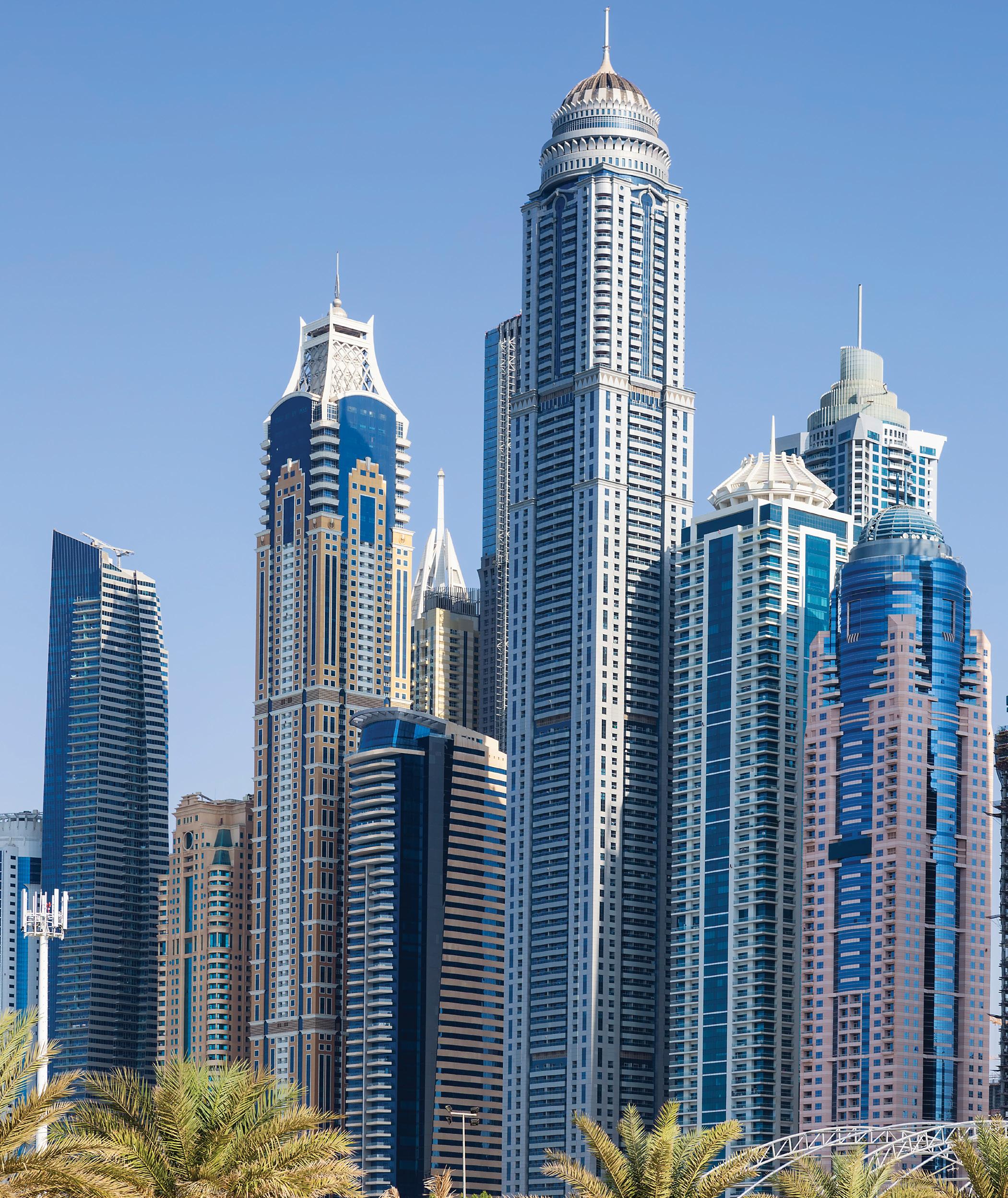
The Gulf region has rapidly cemented its reputation as a global hub for entrepreneurship. But as the headlines focus on unicorn valuations and tech mega-deals, a quieter but equally important revolution is underway: the rise of inclusive startup ecosystems.
Today, cities across the Gulf are recognizing that sustainable growth demands diversity. Empowering women founders, supporting youth-led ventures, promoting social enterprises, and ensuring broad access to funding are no longer side projects—they are becoming pillars of economic strategy.
Here are the leading cities transforming the Gulf into a region where innovation includes everyone.
Dubai has long been synonymous with ambition. But beyond the skyline and venture capital headlines, it has emerged as a leader in inclusive entrepreneurship.
Female-led initiatives are flourishing: Mysk, a co-working platform run by women for women, and getinPowered, which helped women enter the Takaful (Islamic insurance) sector, both signal stronger support for underrepresented founders .One standout is Wom‑ enpreneur Middle East, a Dubaibased platform empowering women founders across the region. Through mentorship, workshops, and visibility campaigns, Womenpreneur connects women entrepreneurs to funding opportunities, industry experts, and regional expansion pathways. Its presence reflects Dubai’s commitment to building an innovation ecosystem where women thrive.
Initiatives like AstroLabs, partnered with Google, also play a crucial role. AstroLabs’ “600 Forward” program has helped over 600 startups—many led by women
and minority founders—expand into the UAE and Saudi markets.
Policy frameworks matter too. Dubai’s international financial centres, DIFC and ADGM, have introduced governance policies encouraging female board representation and advancing diversity within startups. Combined with flagship events like Step Conference and GITEX Future Stars, which spotlight diverse founders, these efforts position Dubai as the Gulf’s most mature ecosystem for inclusive innovation.
The UAE’s capital has taken a quieter but highly strategic approach to inclusive entrepreneurship.
Hub71, Abu Dhabi’s flagship tech ecosystem, has emerged as a regional success story. Backed by Mubadala, the program has supported over 370 startups, raised over $2 billion in capital, and generated significant revenues for founders. Notably, Hub71’s 2020 cohort saw nearly a third of new startups led by women—a statistic that reflects intentional progress on diversity.
Abu Dhabi’s inclusivity push extends beyond gender. Programs like Hub71+ ClimateTech, partnerships with Techstars, and initiatives with Abu Dhabi Islamic Bank ensure that Emiratis, women, and
social impact founders gain access to mentorship, capital, and global networks.
As Hanan Harara Al Yafei, Hub71’s CEO, emphasized, the emirate is building an innovation culture rooted in diversity and opportunity for all—a vision that’s already producing tangible results.
Saudi Arabia’s capital has experienced an entrepreneurial surge. According to the Global Startup Ecosystem Report 2025, Riyadh jumped an impressive 60 places to rank 23rd globally among emerging startup ecosystems.
This transformation hasn’t ignored inclusivity. In fact, it has placed women, youth, and firsttime founders at the center. Mon sha’at, the national SME authority, has introduced funding programs, regulatory reforms, and training to empower underrepresented entrepreneurs. Women now own nearly 45% of SMEs in the broader Makkah region, reflecting deep engagement by female founders.
Riyadh’s flagship events, including LEAP Tech Conference, are global in scale and diverse in participation, showcasing startups across AI, fintech, and health tech led by founders from all backgrounds.
Regulatory reforms, including improved bankruptcy protections

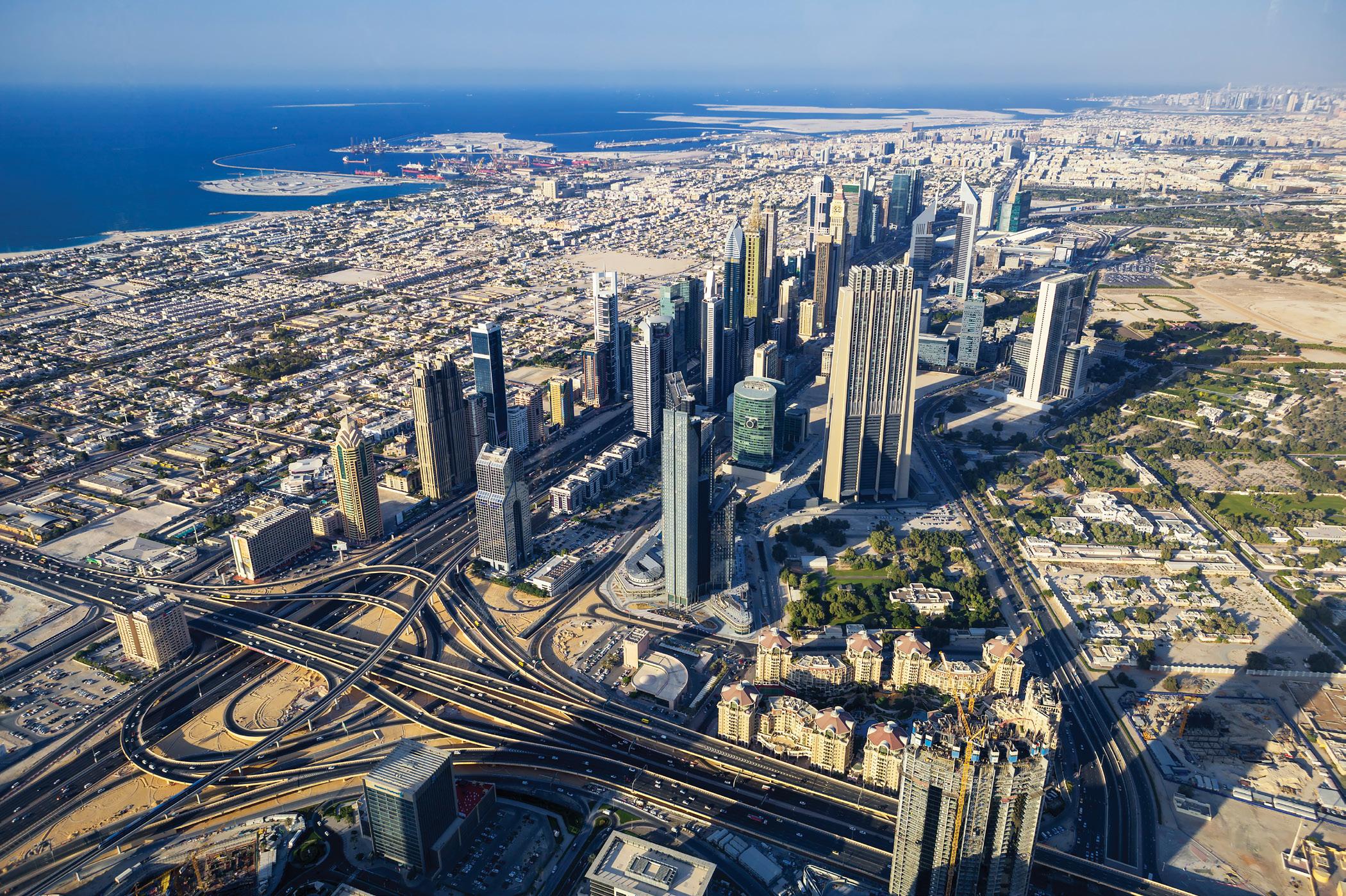
and SME-friendly incentives, are ensuring that diverse startups not only launch—but scale—successfully in Riyadh.
Jeddah has quietly built a reputation as a hub for grassroots, inclusive entrepreneurship. The King Abdullah Economic City (KAEC), operating with public and private backing, provides mentorship, investor access, and capacity-building for women-led ventures.
Meanwhile, King Abdullah Eco nomic City (KAEC) has expanded its incubation spaces, prioritizing youth, social enterprises, and SMEs. Its strategic location on the Red Sea gives startups in Jeddah access to regional markets, fueling cross-border collaboration and inclusive scale-up opportunities.
These initiatives are turning Jeddah into a model for inclusive, community-driven entrepreneurship.
Bahrain may be small, but its startup policies punch above their weight— particularly when it comes to inclusivity.
The Bahrain Economic Develop‑ ment Board and AstroLabs Bah‑ rain have established a supportive environment for women, youth, and minority entrepreneurs. Startup Bahrain simplifies startup registration, while Tamkeen’s subsidy and training programs prioritize underrepresented founders.
Bahrain’s Women’s Business Com mittee, part of the Chamber of Commerce, further amplifies female entrepreneurship, while regulatory simplicity and affordable operational costs make Manama an attractive launchpad for first-time founders.
Qatar’s capital has integrated inclusivity into its national development strategy.
Through Silatech, co-founded by Sheikha Mozah bint Nasser, over 200,000 Arab youth have accessed employment and entrepreneurial support. The program targets underserved communities and provides mentorship, training, and financial assistance for young founders.
Meanwhile, Startup Qatar and Qa tar Science & Technology Park offer funding, co-working space, and R&D support to startups—with special attention to female-led businesses and social impact ventures. Doha is emerging as a civic-minded hub where innovation and inclusivity intersect.
Muscat’s startup scene may be smaller, but it stands out for its focus on social enterprise and inclusion.
The Oman Technology Fund, with a $150 million capital pool, prioritizes support for Omani, women, and rural entrepreneurs. Programs like SAS for Entrepreneurship, led by Oman’s IT Authority, equip underrepresented founders with digital

skills, startup support, and business mentorship.
Oman’s ecosystem extends beyond urban centers, ensuring that rural communities and persons with disabilities also have pathways to entrepreneurial success.
While outside the GCC, Cairo plays a vital role in the region’s inclusive innovation network.
With over $1 billion in annual venture capital, Cairo’s ecosystem is fueled by accelerators like Flat6Labs,
which have championed gender-inclusive cohorts and youth-led startups for over a decade.
Government programs aligned with Egypt’s 2030 Vision promote SME inclusion, while Gulf investors and partnerships facilitate market access for diverse Egyptian founders looking to scale regionally. Cairo is a critical link in connecting inclusive startups to the broader Gulf economy.
Amman has long been a pioneer of inclusive entrepreneurship.
Accelerators like Oasis500 have seeded hundreds of startups, with a focus on women-led ventures and refugee-founded businesses. Programs such as the Shehriyat Pro gram offer capital, mentorship, and training for female entrepreneurs, reinforcing Amman’s reputation as a welcoming hub for diverse founders.
Collaboration with Gulf investors and incubators strengthens these efforts, building a bridge between Jordanian startups and regional markets.
Despite economic and political challenges, Beirut remains a resilient node in the inclusive startup landscape.
Organizations like Berytech, AltC ity, and the Lebanese League for Women in Business (LLWB) provide vital support for women-led, social impact, and refugee-focused startups.
Lebanon’s large diaspora and Gulfbased angel networks continue to fund and mentor startups from Beirut, ensuring that diversity and social innovation remain central to the city’s entrepreneurial identity.
The Inclusive Future of Gulf Startups
Across these ten cities, a clear message emerges: inclusive entrepreneurship isn’t just about social good—it’s a growth strategy.
By empowering women, youth, rural communities, and minority founders, Gulf cities are building more resilient, innovative economies. Initiatives like Womenpre neur Middle East, Hub71’s diversity programs, Riyadh’s SME reforms, and grassroots support in places like Muscat and Beirut demonstrate that inclusivity and ambition go hand in hand.
As the Gulf charts its future beyond oil, these inclusive startup ecosystems will be critical to unlocking the region’s full entrepreneurial potential.
The Gulf is no longer just adopting technology—it is building it. From AI to super-apps, quantum computing to Arabic-first generative models, a new generation of Gulfbased startups and companies are engineering products that go beyond regional relevance—they are pushing technical boundaries on a global scale.
These disruptors are not simply digitizing services; they are designing proprietary platforms, advanced AI models, and future-proof solutions that have the potential to redefine industries.
Here are the standout companies and technologies reshaping how the world views Gulf tech innovation.
Launched in Abu Dhabi in 2023, LocAI exemplifies deep-tech engineering applied to real-world industries. Unlike generic AI tools, LocAI builds vertical AI models—purpose-built for sectors like healthcare, construction, logistics, and customer service.
The company’s flagship language models—Razi for healthcare, Sinan for construction, Mira for service bots—are engineered using advanced natural language processing (NLP) tuned to Arabic language, dialect variations, and technical jargon.
Their architecture incorporates reinforcement learning with human feedback (RLHF) and large-scale domain-specific datasets, allowing the models to outperform generic
LLMs like GPT when applied to local healthcare diagnostics, logistics coordination, or customer interaction in Arabic.
This vertical specialization reflects a technical pivot towards AI that doesn’t just translate global tools— it builds industry-native intelligence from the ground up.
Dubai-born Seez has re-engineered the car-buying experience using computer vision, AI pricing models, and transaction automation.
Its product suite leverages image recognition to evaluate vehicle condition, machine learning algorithms to predict fair pricing, and blockchain-based smart contracts for secure, paperless transactions.
A standout is Seez’s chatbot, Seezar, which uses conversational AI to guide users through complex purchase or financing processes in both Arabic and English—making it one of the most technically sophisticated automotive marketplaces in the region.
Astra Tech has engineered what may be the region’s first true super-app, combining communications, fintech, and service layers into a unified platform.
Botim acquisition gave them access to 150 million users in 155 countries
PayBy brings e-wallet and payment services licensed under the Central Bank of the UAE.
Quantix, now regulated under a Citi-led $500 million asset-backed facility, powers embedded lending
Integration with Rizek and other services adds offerings like groceries, travel, and on-demand care— all orchestrated through AI and payment rails.
The team pioneered biometric authentication (Palm Pay), integrated Apple Pay, MasterCard, and WeChat functionality—all within a controlled digital ecosystem. Astra’s ultra-app is built not as a patchwork of acquisitions but a vertically integrated platform engineered end-to-end
Saudi Arabia’s Humain, launched in 2025, is positioning itself at the cutting edge of AI research, building LLMs (large language models) specifically optimized for Arabic language and dialects.
Humain’s models go beyond simple translation. Their architecture incorporates:
Dialectal adaptation layers, capturing nuances across Gulf, Levantine, Egyptian, and Maghrebi Arabic
Multimodal capabilities, processing text, speech, and visual inputs for richer interaction
High-parameter GPU clusters, rivaling global AI compute standards, to train and deploy these models at scale

This represents a technical leap in LLM development—where language, culture, and AI architecture converge to create models that can outperform Western-trained AI in understanding, generating, and reasoning in Arabic contexts.
Social
Riyadh-based Lucidya demonstrates how AI can be tuned to solve complex language-specific problems—like sentiment analysis in Arabic, a task global AI models often struggle with.
Its proprietary NLP engine:
Analyzes over 15 dialects of Arabic with over 90% accuracy
Deploys deep learning sentiment models, trained on culturally specific datasets
Integrates real-time social media streams, allowing businesses to track brand sentiment and customer behavior across platforms
This level of linguistic and social data engineering provides a technical advantage for enterprises operating in Arabic-speaking markets—making Lucidya a benchmark for AI localized to language complexity.
Developed by Qatar Computing Research Institute (QCRI), Fanar is among the Gulf’s most ambitious AI research projects.
Technically, Fanar integrates:
Text-to-image generation, tailored to Arabic script and cultural contexts
Speech synthesis and voice recognition optimized for Arabic dialects
Multimodal LLM frameworks, enabling seamless interaction across text, voice, and visual inputs
Fanar represents the Gulf’s foray into multimodal generative AI, competing with global AI research by engineering models that un-
derstand and generate language, sound, and imagery in Arabic—a significant technical milestone.
Careem - From ride-hailing to becoming a multi-service super-app
Careem continued its disruptive trajectory in 2024–25. With services spanning deliveries, electric bikes, fintech (Careem Pay), and even gold coin deliveries in Dubai, Careem is a poster child for Gulfborn expansion. Now 50% owned by telecom giant e&, it’s on a mission to redefine mobility and payments in the region.
Enercap — Supercapacitor Hardware Innovation (Abu Dhabi)
Enercap, backed by Apex Investments, is constructing a 16 GWh/ year supercapacitor plant—one of the largest globally . Its output supports:
High-cycle-rate energy storage

Fast charge times ideal for grid stability and EV integration
Longevity and sustainability beyond traditional lithium-ion solutions
This is a hardware-first thesis: Gulf innovation is now engineering
critical physical infrastructure, not just software.
Across these companies, a clear set of engineering patterns emerge:
Vertical Specialization: AI is no longer one-size-fits-all—industry-specific models and platforms outperform generic tools when tuned to real-world sectors.
Language as Infrastructure: From LLMs to social AI, Arabic-centric engineering is producing language models, chatbots, and sentiment tools purpose-built for the region—closing a major technical gap left by global platforms.
Full-Stack System Building: Disruptors like Astra Tech and Humain are not just building apps—they’re constructing secure, scalable infrastructures for fintech, communication, and AI deployment.
Convergence of Research & Product: With projects like Fanar, the line between academic research and real-world product development is blurring, accelerating deep-tech innovation.
What defines the Gulf’s tech disruptors today is not imitation—it’s technical independence. From AI to digital infrastructure, startups and national initiatives are engineering tools, models, and platforms that don’t simply adapt to global technologies—they build alternatives optimized for the Gulf’s languages, industries, and users.
As these engineering-driven disruptors mature, the world may soon look to the Gulf—not only as a market for tech—but as a source of original, technically advanced innovation.
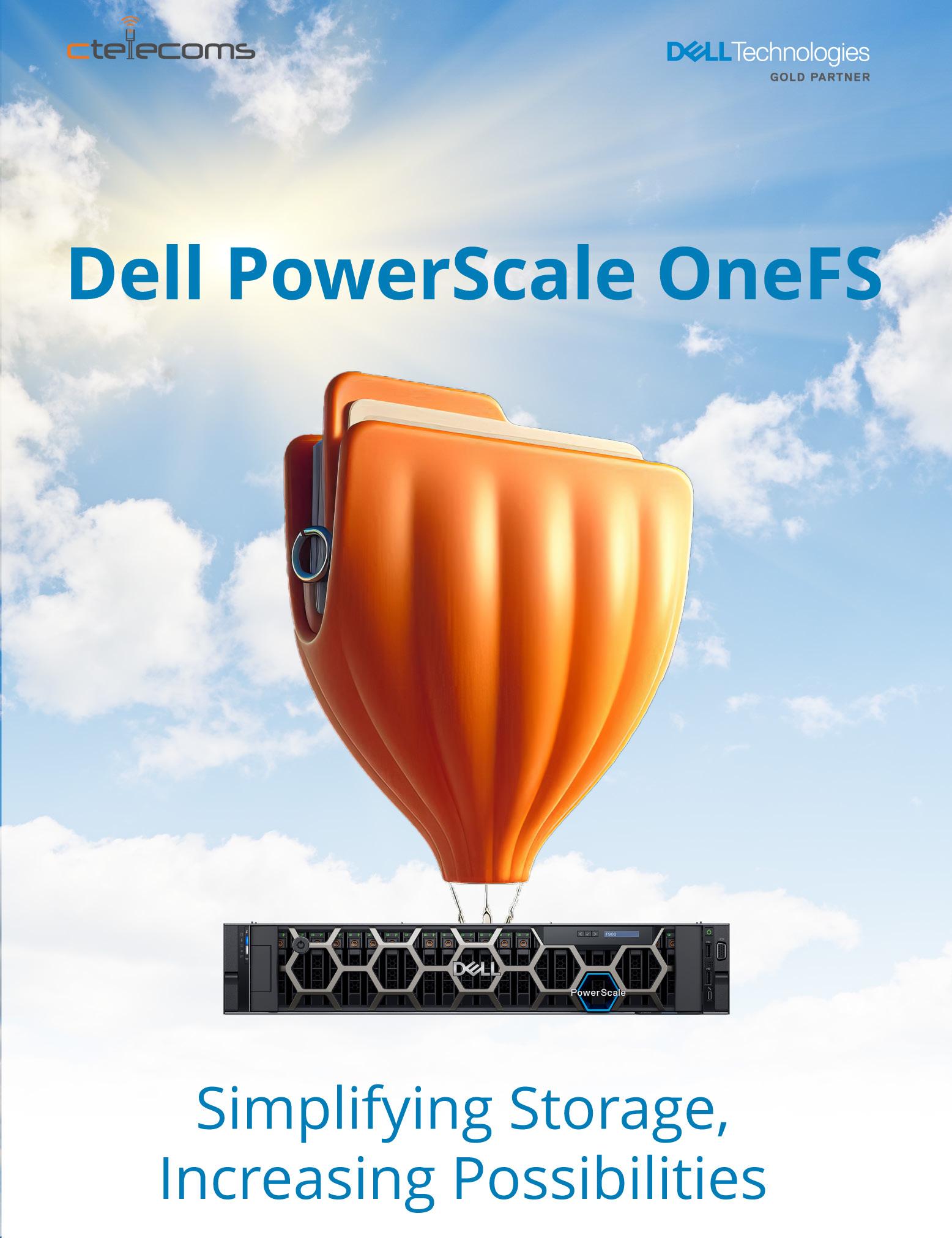

Vision without execution is just a dream — but Saudi Arabia is turning ambition into action, and strategy into transformation. Vision 2030 is no longer a future promise; it’s a present reality. From innovation hubs to inclusive growth, the Kingdom is building a new era—bold, diverse, and unstoppable.
When Saudi Arabia introduced Vision 2030 to the world, it sounded like the launch of an audacious dream. A nation long known for its vast oil reserves, conservative traditions, and a carefully managed economy was suddenly talking about tech hubs, tourism, green energy, and even futuristic cities.
Skeptics wondered whether these grand ideas would remain on glossy brochures. But nearly eight years into the journey, the question has evolved. It’s no longer “Can they do it?” but “How far along are they?”
The short answer? Further than many expected.
Vision 2030 isn’t just a slogan. It’s a detailed roadmap designed to wean the Kingdom off oil dependency, modernize its economy, and open its society to the world. It focuses on economic diversification, job creation, empowering the private sector, and improving quality of life for citizens.
Today, that vision is visible in the daily lives of Saudis. Walk through Riyadh or Jeddah, and you’ll spot the difference. The cities hum with
construction activity. New businesses, many led by young Saudis and women, are popping up. Cafés, once rare gathering spaces, are full of young entrepreneurs discussing tech startups and creative ventures. Entertainment options, from concerts to art exhibitions, have become part of the urban fabric.
What was once a plan on paper is becoming a reality.
Perhaps the most striking sign of change is the tourism sector. A decade ago, Saudi Arabia was virtually closed to international visitors outside of religious pilgrims. Today, it’s investing heavily to become a global destination.
Places like AlUla, with its ancient Nabatean tombs and dramatic desert landscapes, are now open to travelers. The Red Sea Project promises luxury resorts and eco-friendly tourism across pristine islands. Even Riyadh and Jeddah are getting makeovers to attract tourists, business travelers, and global events.
The Kingdom has already seen a surge in tourist arrivals. Hotels are opening, airports are expanding, and new cultural festivals are drawing global attention. This isn’t just about sightseeing—it’s about jobs, economic diversification, and reshaping Saudi Arabia’s image abroad.
For decades, Saudi Arabia’s economy was driven by oil revenues and stateowned enterprises. But Vision 2030 places the private sector at the heart of future growth. The target? Increase its contribution to GDP from 40% to 65%.


It’s an ambitious goal, but momentum is building. Reforms in public procurement are making it easier for private companies, both local and international, to compete for government contracts. Small and medium-sized businesses, once sidelined, are being actively supported through funding programs and regulatory changes.
Young entrepreneurs, particularly women, are finding new opportunities in tech, retail, and services. Startups are no longer an imported concept—they’re a growing part of the local economy.
Saudi Arabia’s Vision 2030 also grabbed headlines for its megaprojects. And while they seemed ambitious—sometimes bordering on science fiction—many are now taking physical shape.
NEOM, the $500 billion futuristic city along the Red Sea coast, promises renewable energy, AI-driven infrastructure, and car-free living. Critics scoffed at first, but the project is well underway. “The Line,” a 170-kilometer linear city designed as part of NEOM, is under construction. Infrastructure, utilities, and residential
development are progressing.
The Red Sea Project, aiming to position Saudi Arabia as a high-end sustainable tourism hub, is moving forward with resort developments and renewable energy integration. Meanwhile, Diriyah Gate is revitalizing a historic district in Riyadh, blending Saudi heritage with modern urban living.
These aren’t just architectural showpieces—they’re job creators, innovation hubs, and key milestones of the broader economic transformation.
Perhaps the most profound part of Vision 2030 isn’t in the numbers—it’s in the atmosphere. Saudi society is changing.
Entertainment, once minimal, is booming. Music concerts, film screenings, sports tournaments, and cultural festivals are now part of daily life. The annual Riyadh Season has become a must-attend for millions, offering everything from live performances to global exhibitions.
But beyond entertainment, there’s been a tangible shift in how people live, work, and interact. Women’s empowerment is at the heart of this.
Women can now drive, travel independently, and start businesses. Female participation in the workforce has nearly doubled in recent years. More importantly, women are visible in leadership roles across sectors, from government to tech startups.
Public spaces feel more open and inclusive. Cafés, events, and parks host men and women together. Young Saudis, who make up the majority of the population, are finding a country that feels more in tune with their aspirations.
Despite these visible signs of progress, transforming an entire nation isn’t without its hurdles.
Moving away from an oil-dependent economy is complex, especially given the volatility of global energy markets. Attracting and retaining foreign investment requires more than vision—it demands clear regulations, ease of doing business, and a nurturing environment for innovation.
Bureaucracy, though improving, remains a sticking point for some entrepreneurs and investors. Building new industries, from tourism to tech, takes time, patience, and careful management.
There’s also the challenge of balancing rapid modernization with cultural preservation. Saudi Arabia is deeply rooted in tradition, and the government must carefully navigate societal expectations alongside reforms.
International perceptions also remain mixed. Critics point to human rights issues and past policies. But even they acknowledge that, on the ground, significant change is underway—and the Kingdom is making a deliberate effort to reshape its global image.
Vision 2030 isn’t about abandoning Saudi Arabia’s heritage. It’s about

broadening the country’s identity beyond oil and tradition.
The influx of international events, foreign investments, and global partnerships signals a country eager to engage with the world. Riyadh is positioning itself as a regional business hub. Tech and sustainability sectors are attracting fresh talent. The Kingdom is investing in its people, its infrastructure, and its global competitiveness.
And while the journey is far from over, what’s clear is that Vision 2030 is no longer a distant aspiration—it’s a work in progress, unfolding in plain sight.
Saudi Arabia’s transformation under Vision 2030 won’t happen overnight. But step by step, project by project, reform by reform, the Kingdom is moving in a new direction.
For the people of Saudi Arabia, the changes are real: new jobs, more freedoms, global exposure, and a sense of possibility. For the world, the message is becoming clearer— this is a country intent on building its future, not just talking about it.
Vision 2030 is no longer confined to policy documents. It’s visible in the cranes reshaping city skylines, the startups emerging across the Kingdom, the tourists exploring once-hidden treasures, and the everyday lives of Saudis embracing a new chapter
The blueprint is in motion. The future is being built, one bold step at a time.
Saudi Vision 2030 is more than a roadmap—it’s a reinvention. A nation once defined by oil is now driven by innovation, inclusion, and possibility. The future isn’t coming—it’s already under construction.
